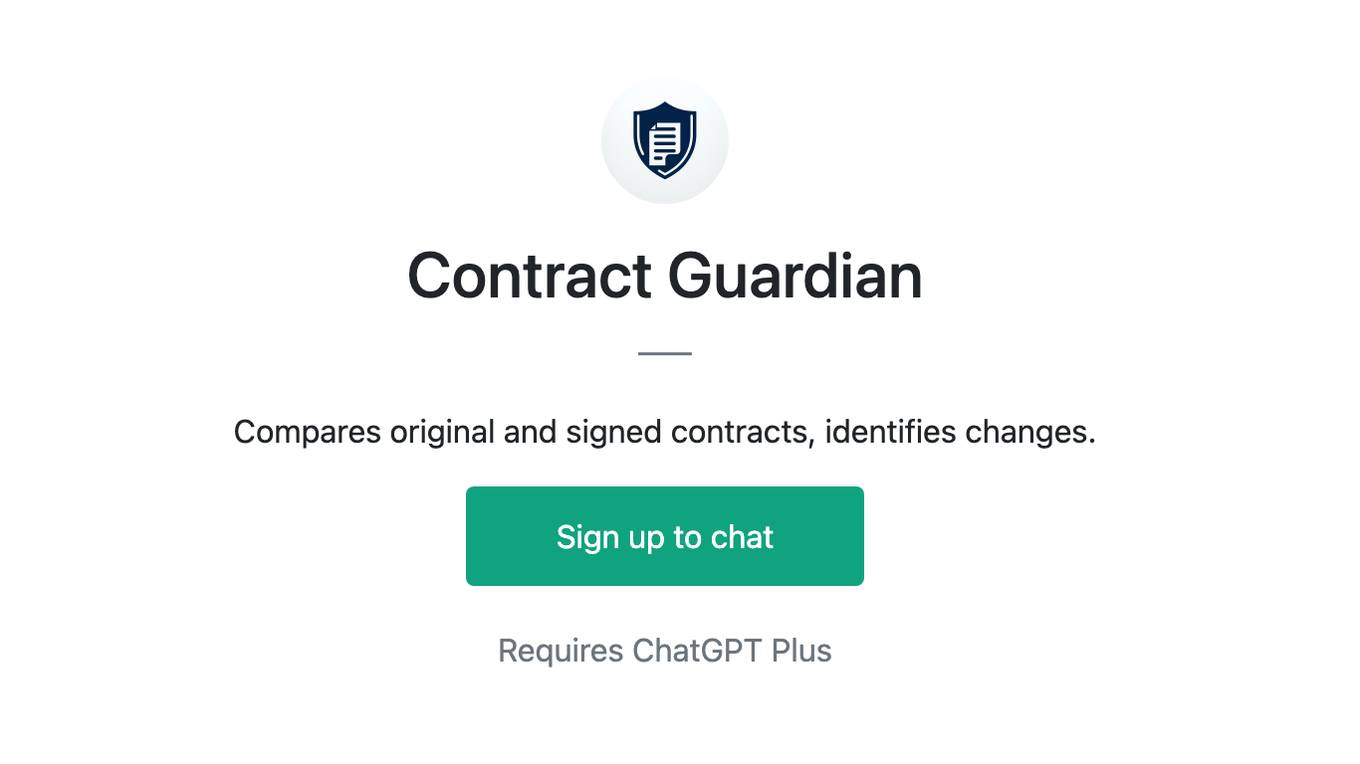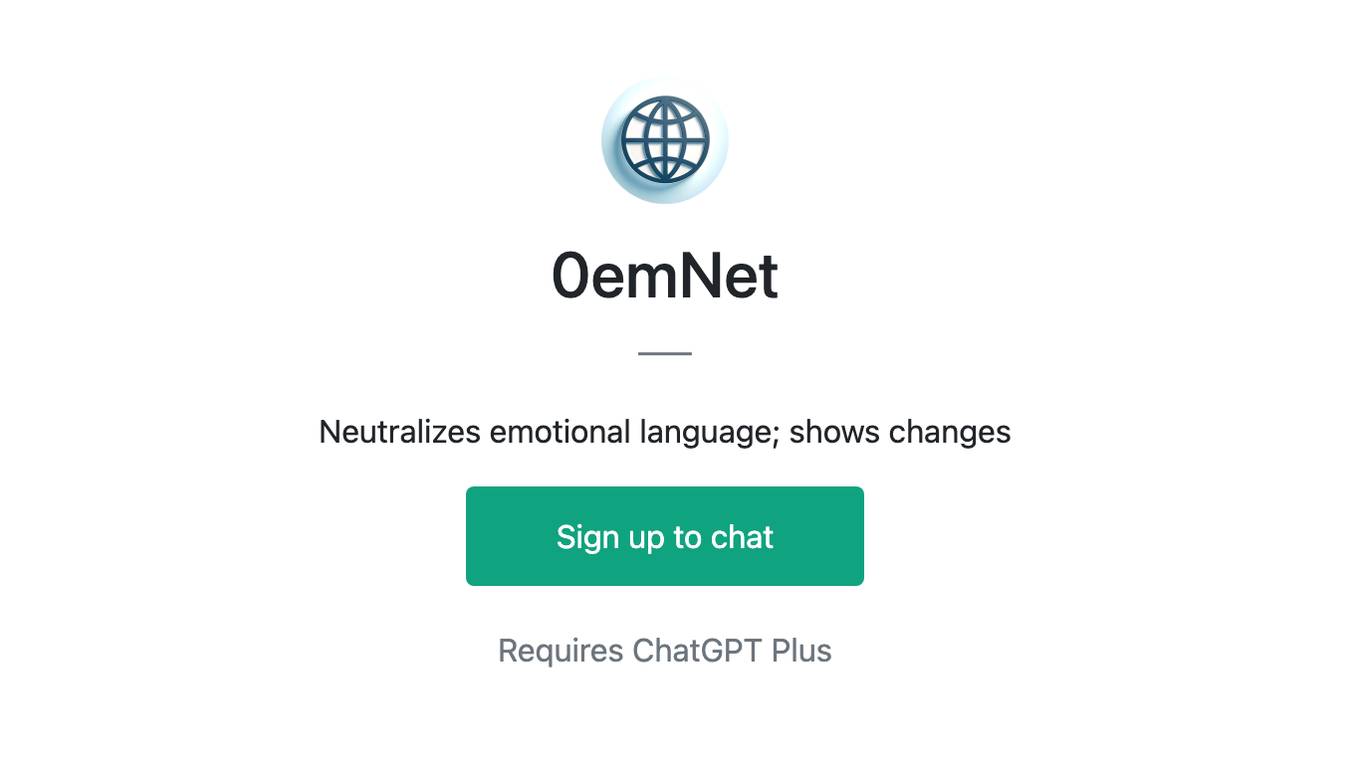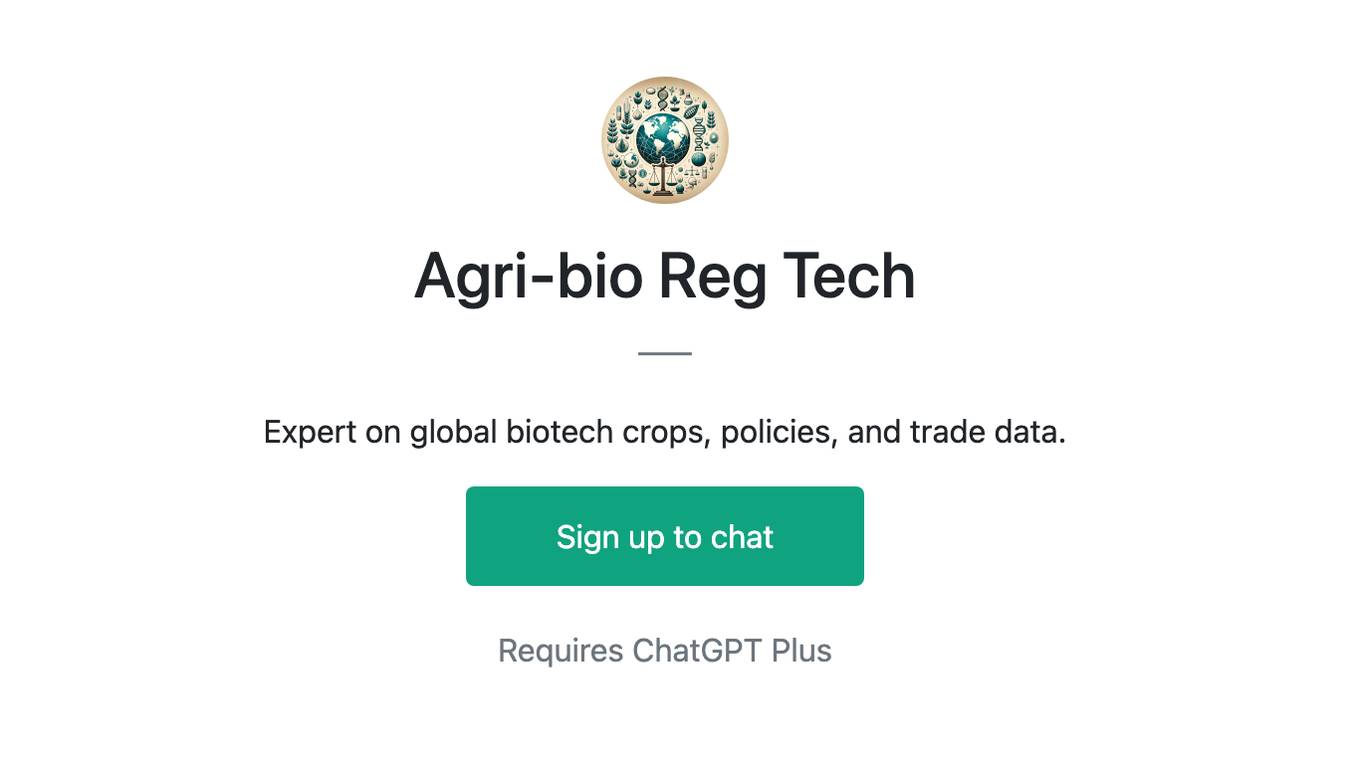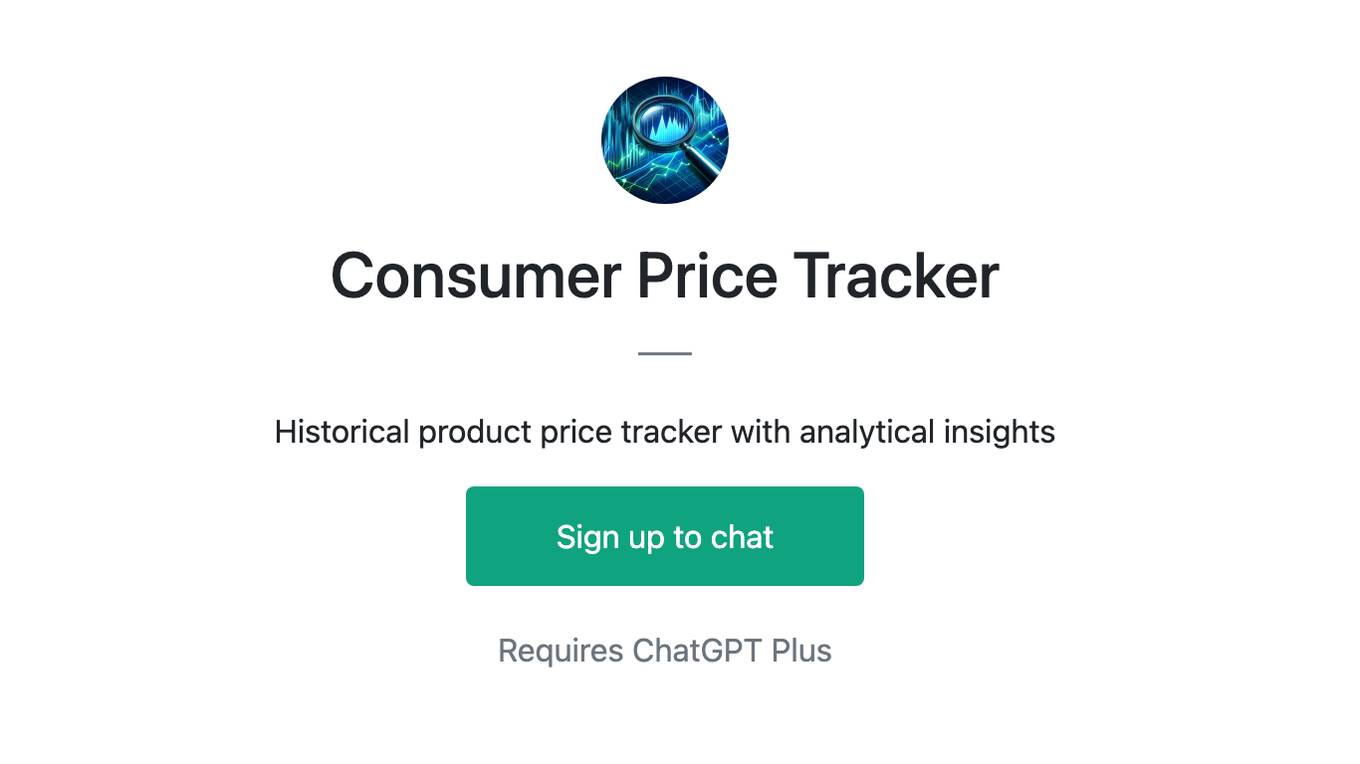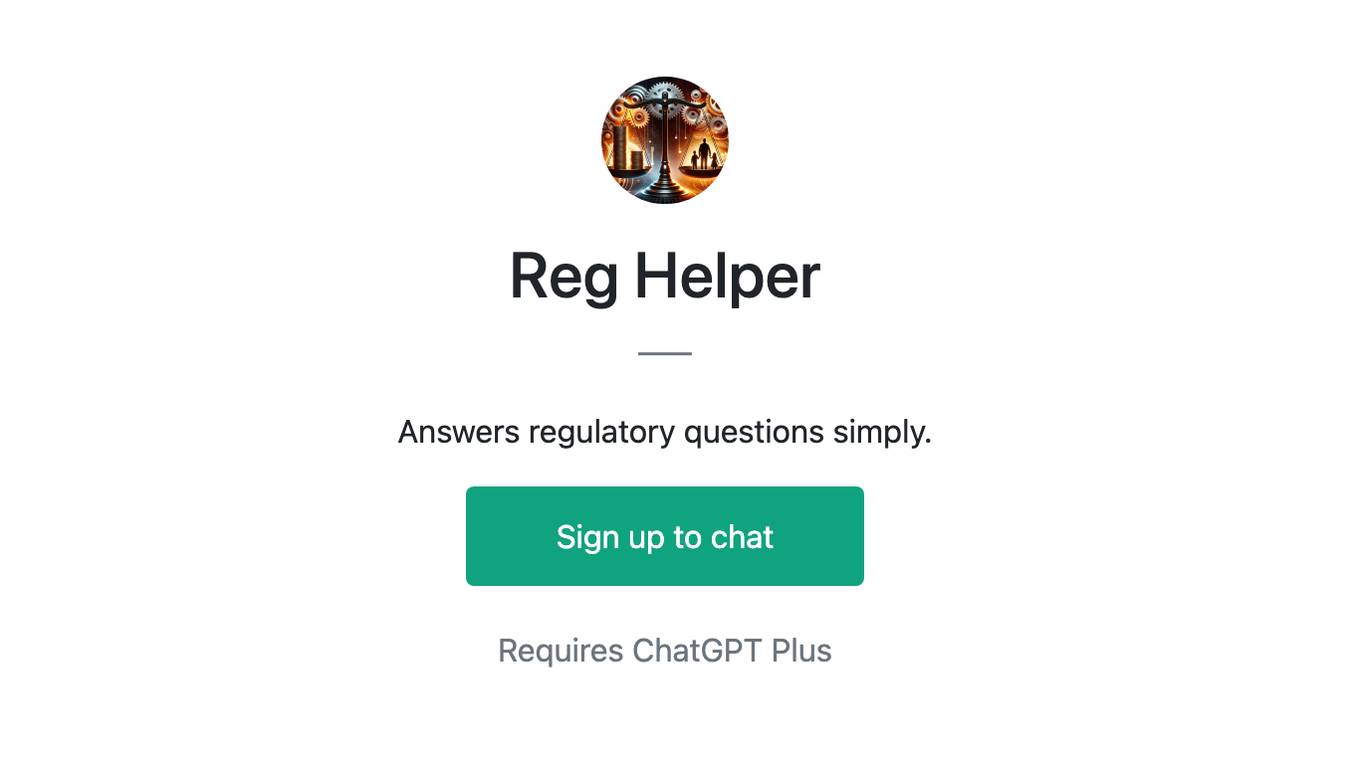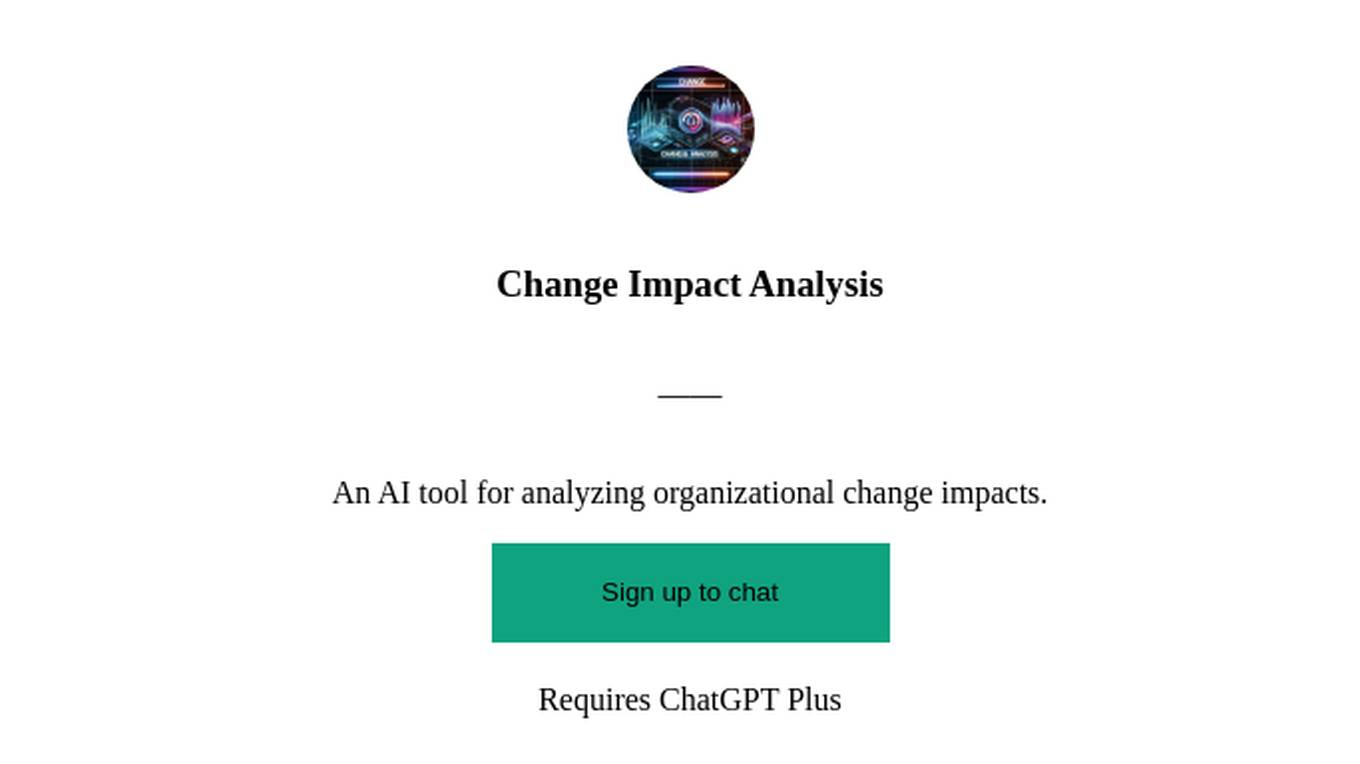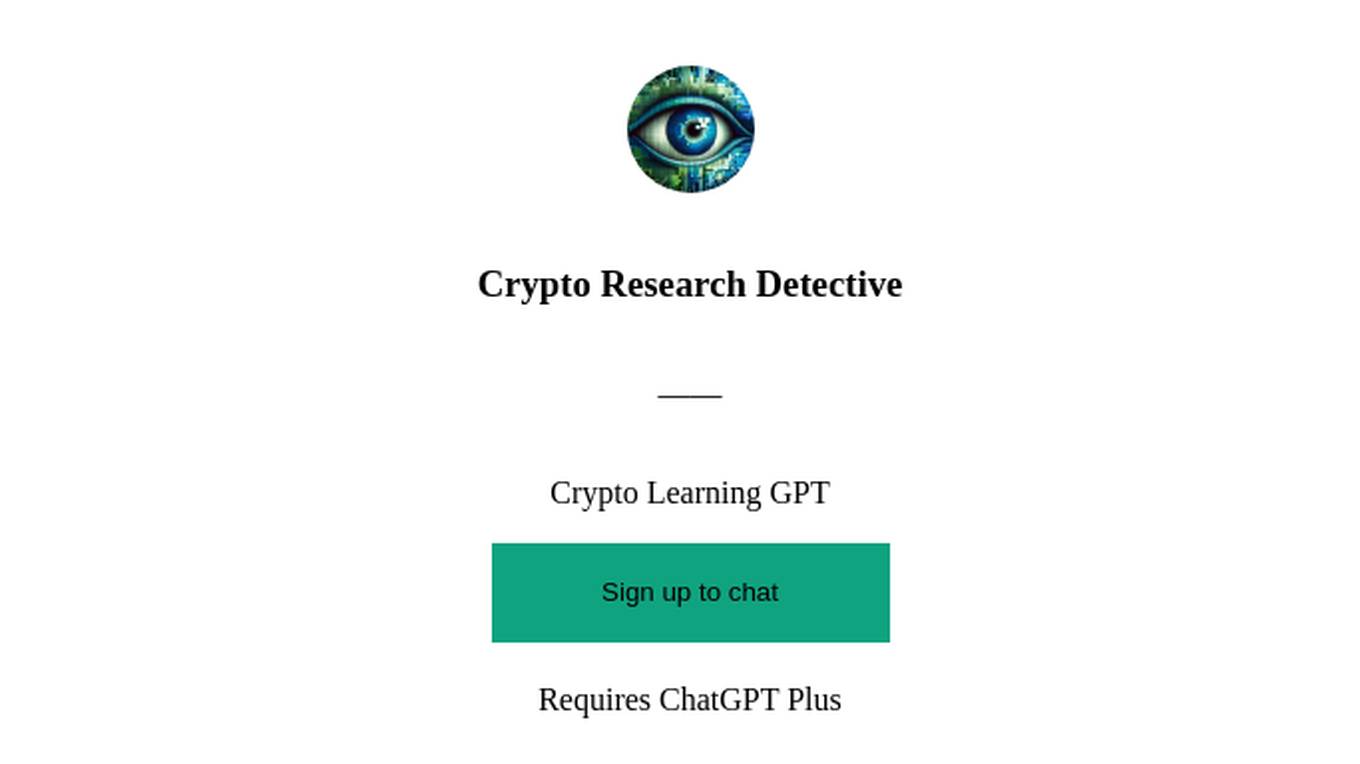Best AI tools for< Identify Changes >
20 - AI tool Sites
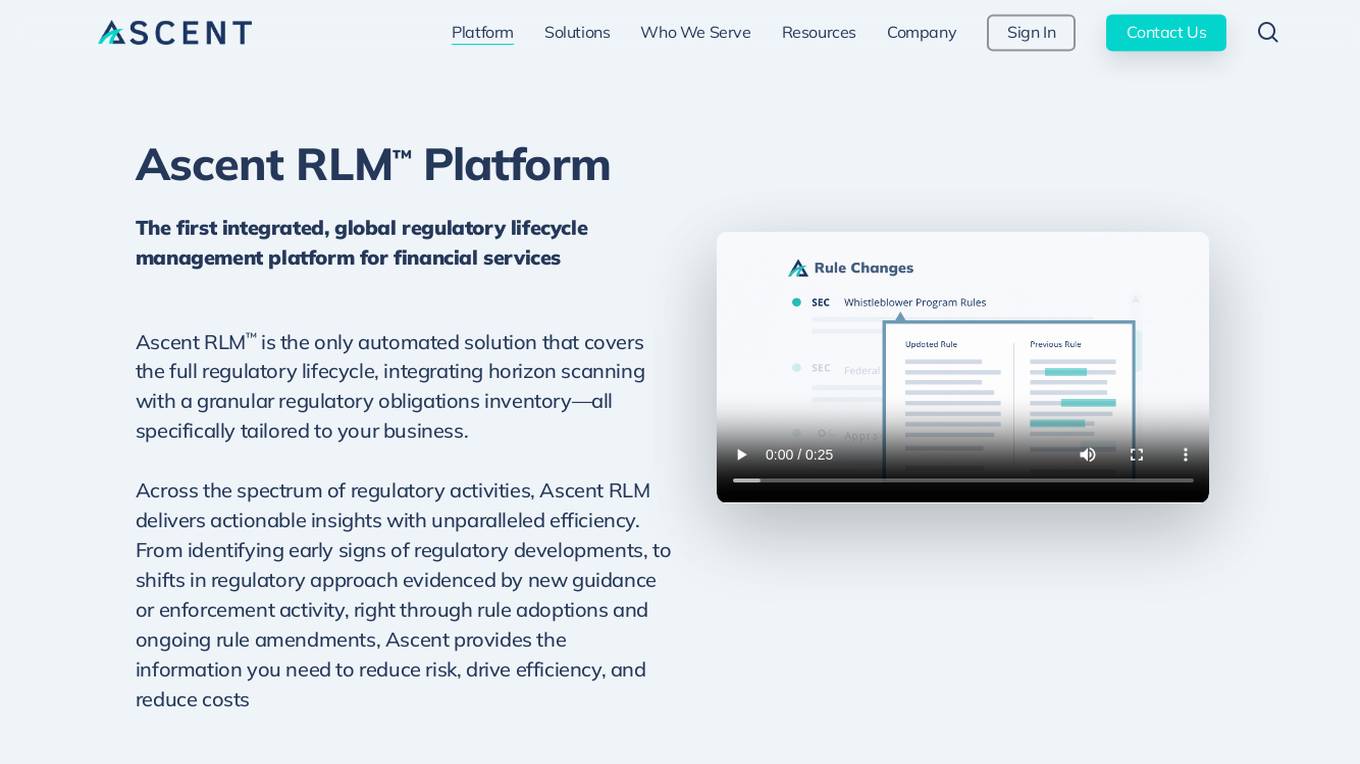
Ascent RLM
Ascent RLM is a regulatory lifecycle management platform that helps financial services companies identify, analyze, and manage regulatory obligations. It is composed of two integrated modules: AscentHorizon, a global horizon scanning tool, and AscentFocus, a regulatory mapping tool. Ascent RLM automates the regulatory mapping process, extracts individual obligations from regulatory text, and provides a centralized digital register of a firm's regulatory obligations. It also includes features such as side-by-side rule comparison, scenario planning, and audit trail.
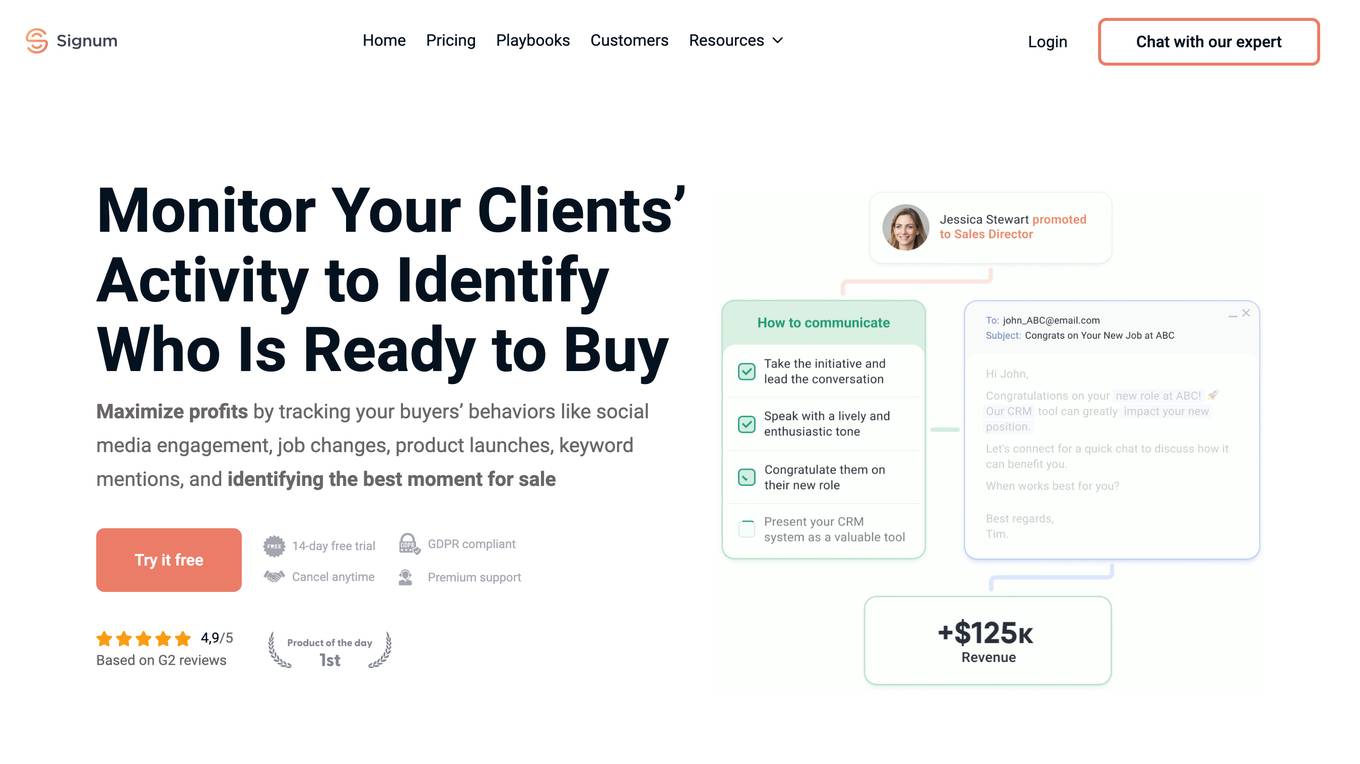
Signum.AI
Signum.AI is a sales intelligence platform that uses artificial intelligence (AI) to help businesses identify customers who are ready to buy. The platform tracks key customer behaviors, such as social media engagement, job changes, product launches, and keyword mentions, to identify the best time to reach out to them. Signum.AI also provides personalized recommendations on how to approach each customer, based on their individual needs and interests.
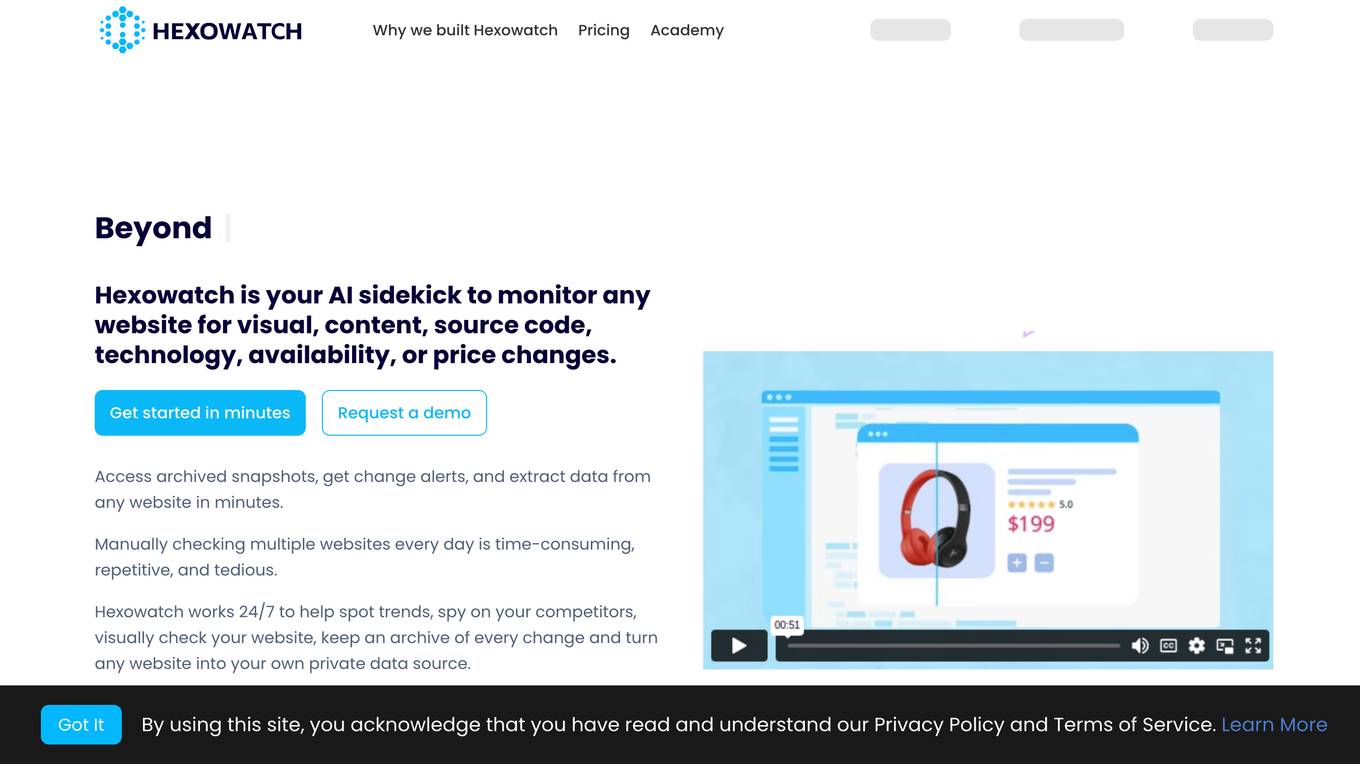
Hexowatch
Hexowatch is an AI-powered website monitoring and archiving tool that helps businesses track changes to any website, including visual, content, source code, technology, availability, or price changes. It provides detailed change reports, archives snapshots of pages, and offers side-by-side comparisons and diff reports to highlight changes. Hexowatch also allows users to access monitored data fields as a downloadable CSV file, Google Sheet, RSS feed, or sync any update via Zapier to over 2000 different applications.

Bestlook
Bestlook is an AI-powered application that helps individuals and professionals in the beauty industry to enhance their appearance through objective and personalized recommendations. By leveraging Artificial Intelligence, Bestlook analyzes beauty insights from millions of people to identify the most captivating facial features. Users can preview before and after simulations with a simple click, ensuring a confident cosmetic journey. The application offers tailored plans for individuals and professionals, providing unlimited manual simulations and AI predictions. Bestlook aims to redefine beauty standards by offering universally admired looks.
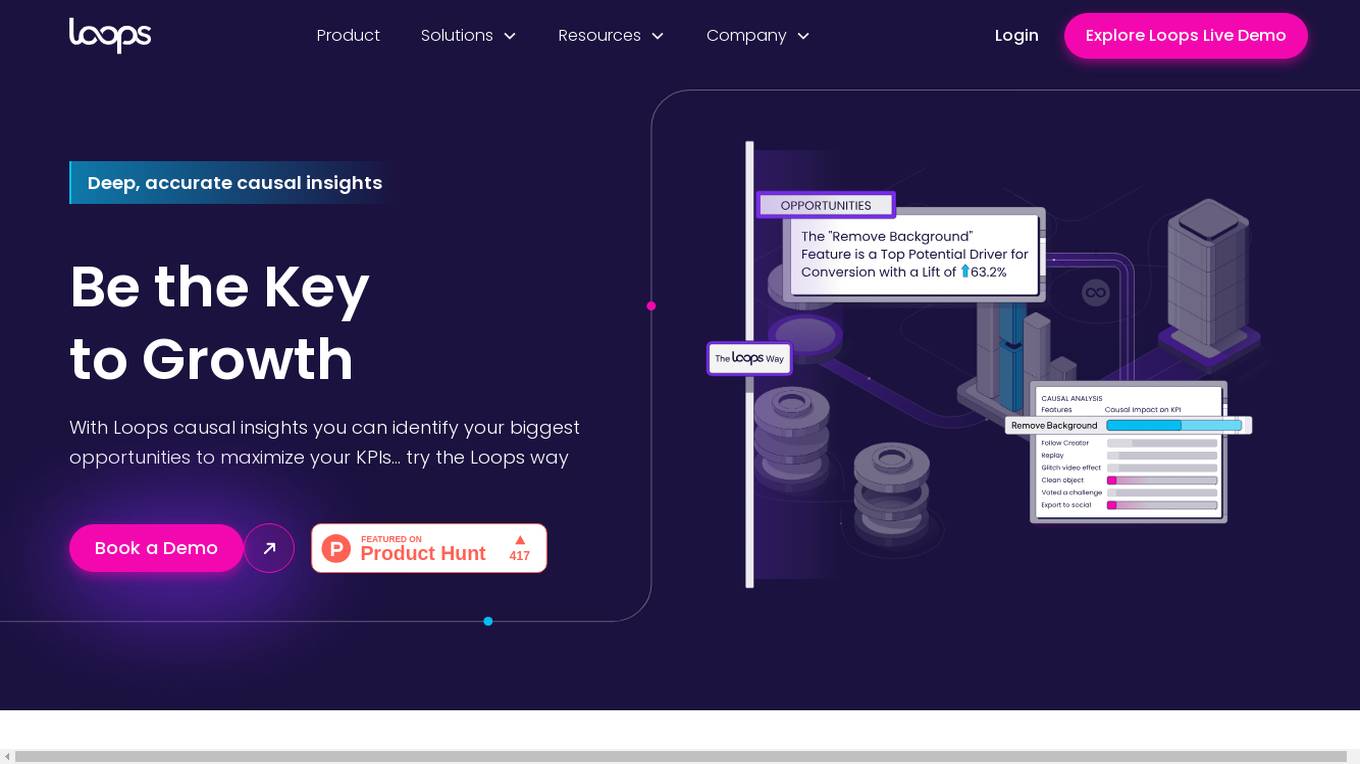
Loops
Loops is an AI tool that empowers data analysts and product managers to make informed decisions based on deep, accurate causal insights. It leverages proprietary causal inference models to identify opportunities for maximizing key performance indicators (KPIs) without the need for traditional A/B testing. By analyzing user behaviors and business metrics, Loops helps companies prioritize efforts efficiently and proactively review impactful opportunities. The tool simplifies the process of understanding causality, providing actionable insights for product teams to drive growth and increase KPIs.
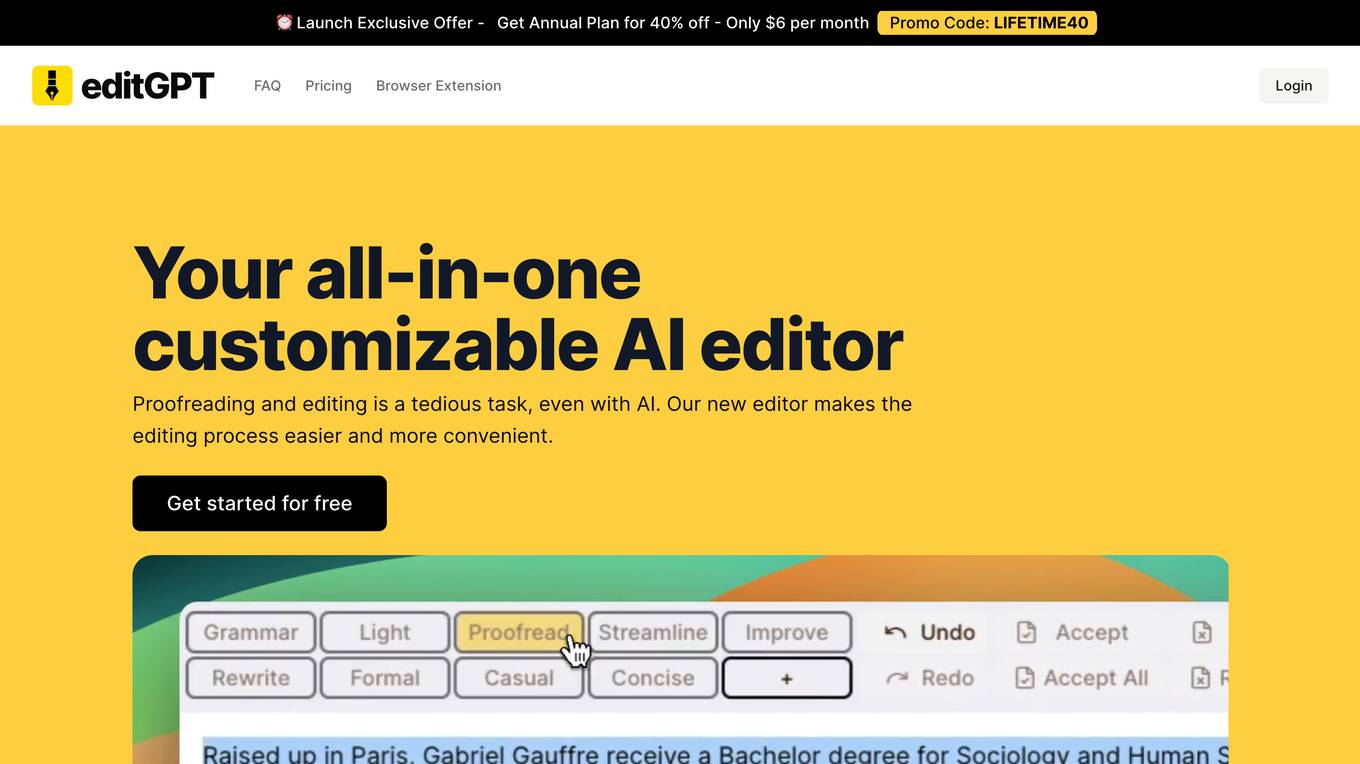
editGPT
editGPT is an AI-powered tool that helps you proofread, edit, and track changes to your content in chatGPT. It uses advanced natural language processing (NLP) algorithms to identify and correct errors in grammar, spelling, punctuation, and style. editGPT also allows you to collaborate with others on your content, track changes, and get feedback. With editGPT, you can be confident that your content is error-free and polished.
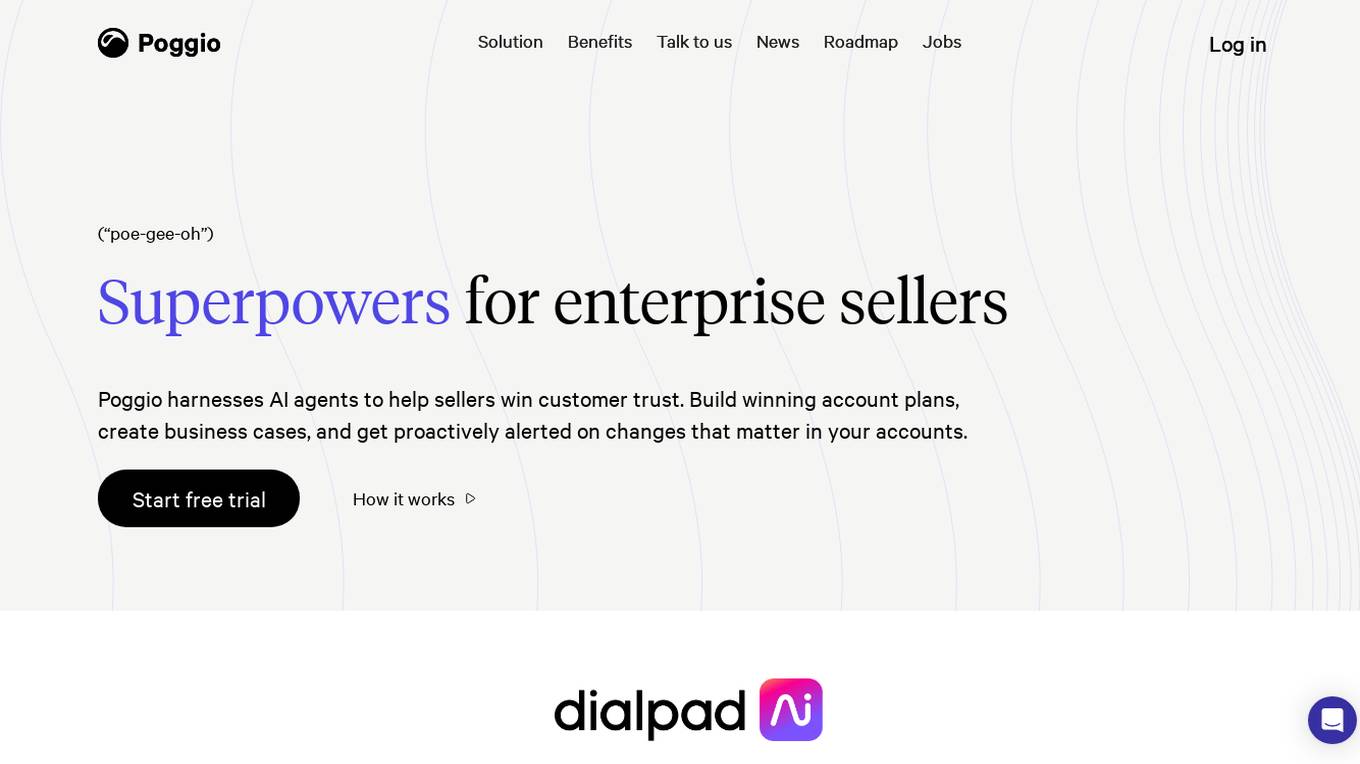
Poggio.io
Poggio.io is an AI-powered solution designed for enterprise sellers to enhance their sales process. By harnessing AI agents, Poggio helps sellers build winning account plans, create business cases, and stay informed about important changes in their accounts. The platform enables users to conduct expert-level account research in seconds, tailor messaging based on value propositions, and save time on researching to focus more on selling. Poggio also assists in generating account plans quickly, staying prepared for critical interactions, and building meaningful connections with prospects.
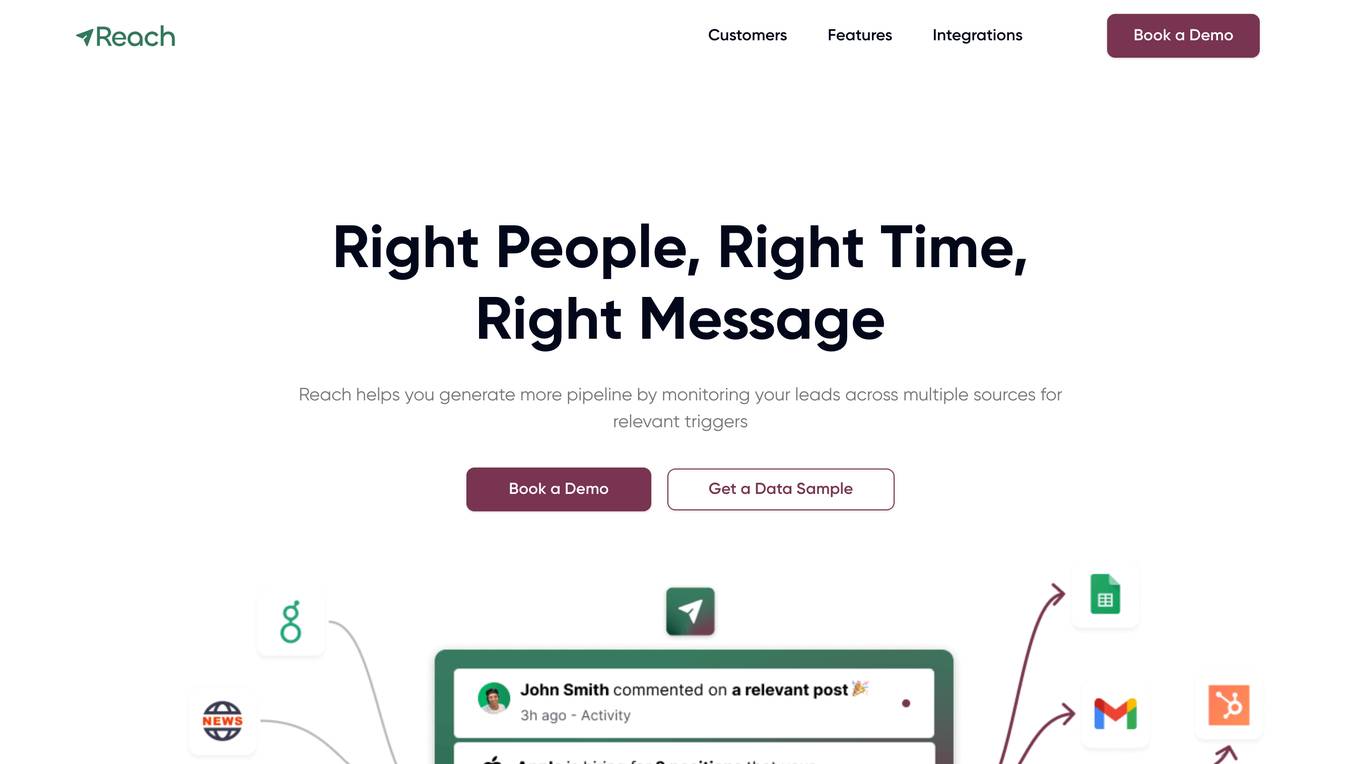
Reach
Reach is a sales engagement platform that helps businesses generate more leads and close more deals. It uses artificial intelligence to monitor leads across multiple data sources for relevant triggers, such as job changes, company news, and social media activity. Reach then provides sales reps with daily notifications of these triggers, along with personalized icebreaker suggestions and AI-generated copy. This enables sales reps to reach out to leads at the right time with the right message, increasing their chances of success.
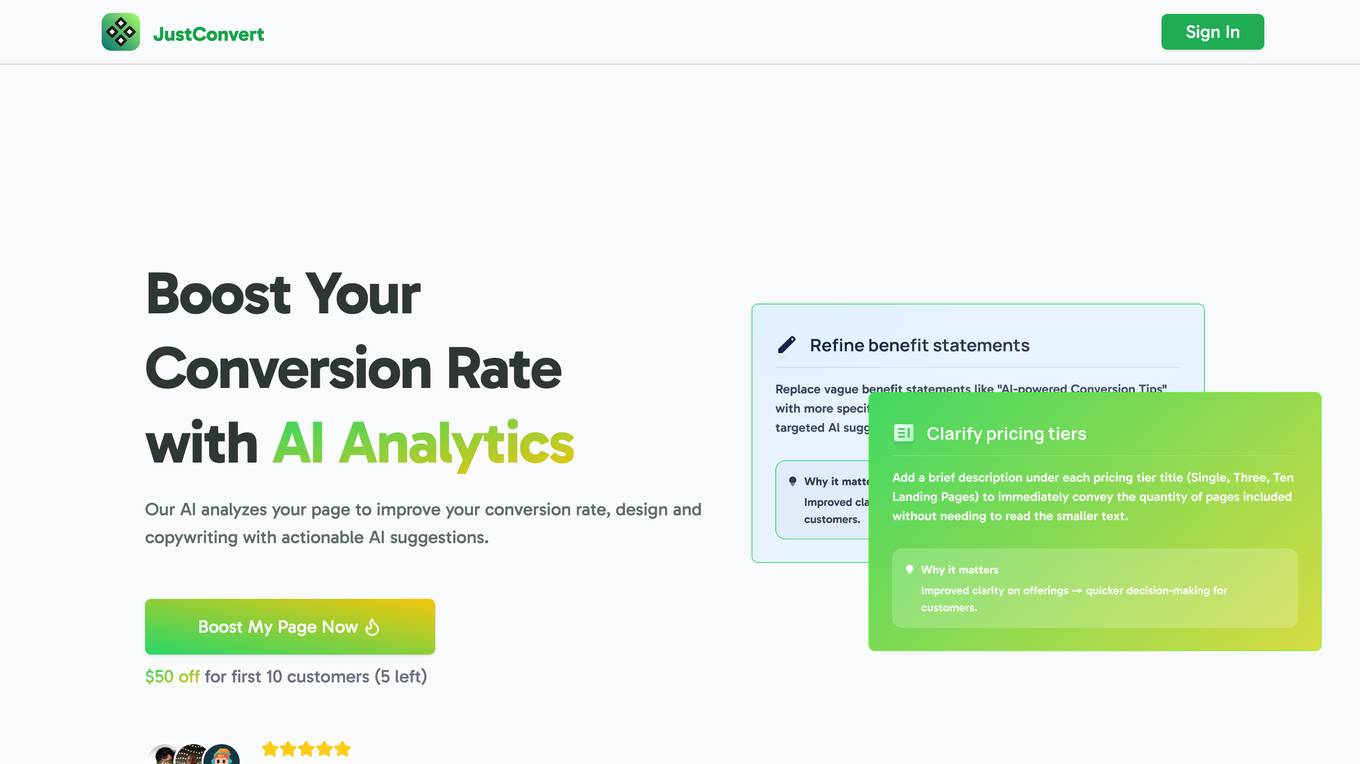
JustConvert
JustConvert is an AI-powered conversion optimization tool that analyzes your website to provide actionable suggestions for improving your conversion rate, design, and copywriting. It is designed to be easy to use and affordable, even for small businesses and startups. With JustConvert, you can quickly and easily identify areas for improvement on your website and get specific recommendations on how to fix them. This can lead to a significant increase in your conversion rate, which can mean more sales, leads, or signups for your business.
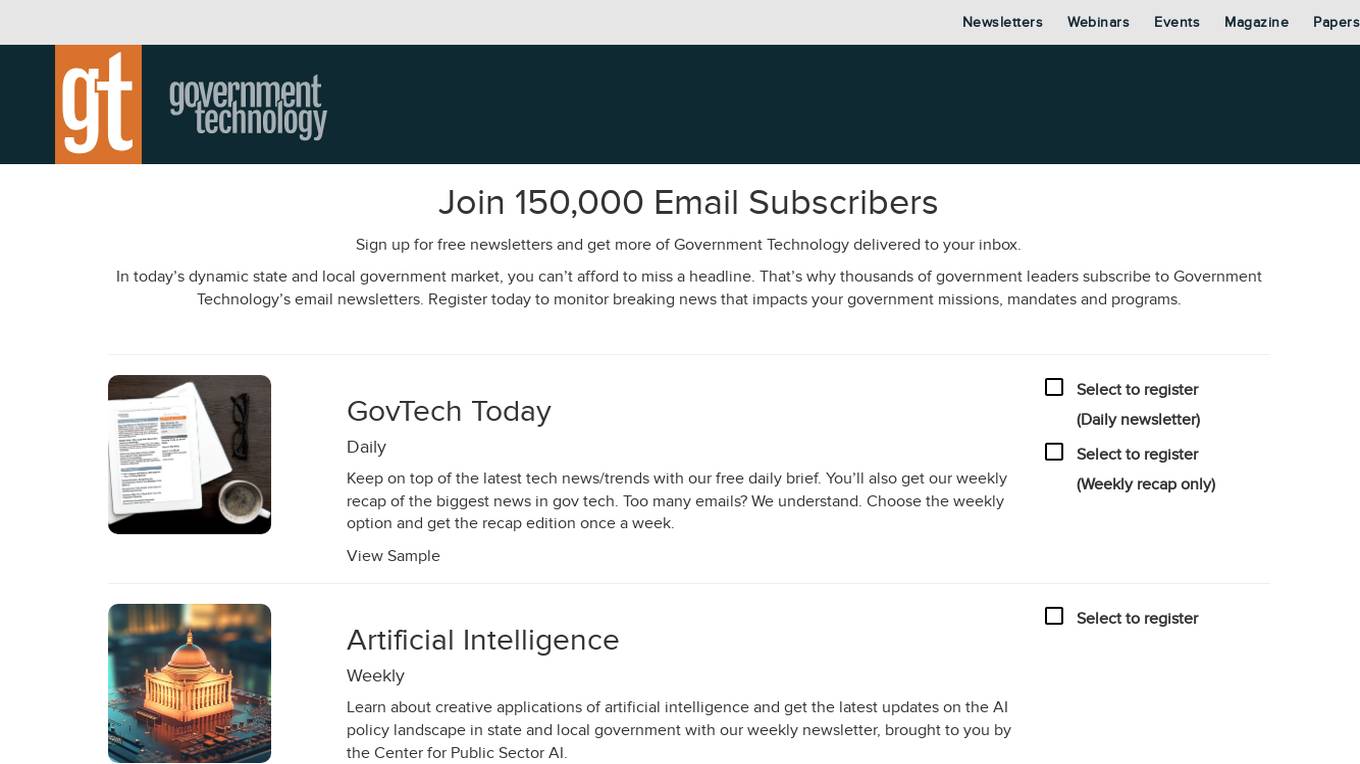
Government Technology Newsletters
Government Technology provides email newsletters that deliver the latest news and updates on various topics relevant to government leaders, including technology trends, artificial intelligence, cybersecurity, digital communities, emergency management, government business, higher education, and K-12 education. These newsletters aim to keep subscribers informed about critical developments and best practices in their respective fields.
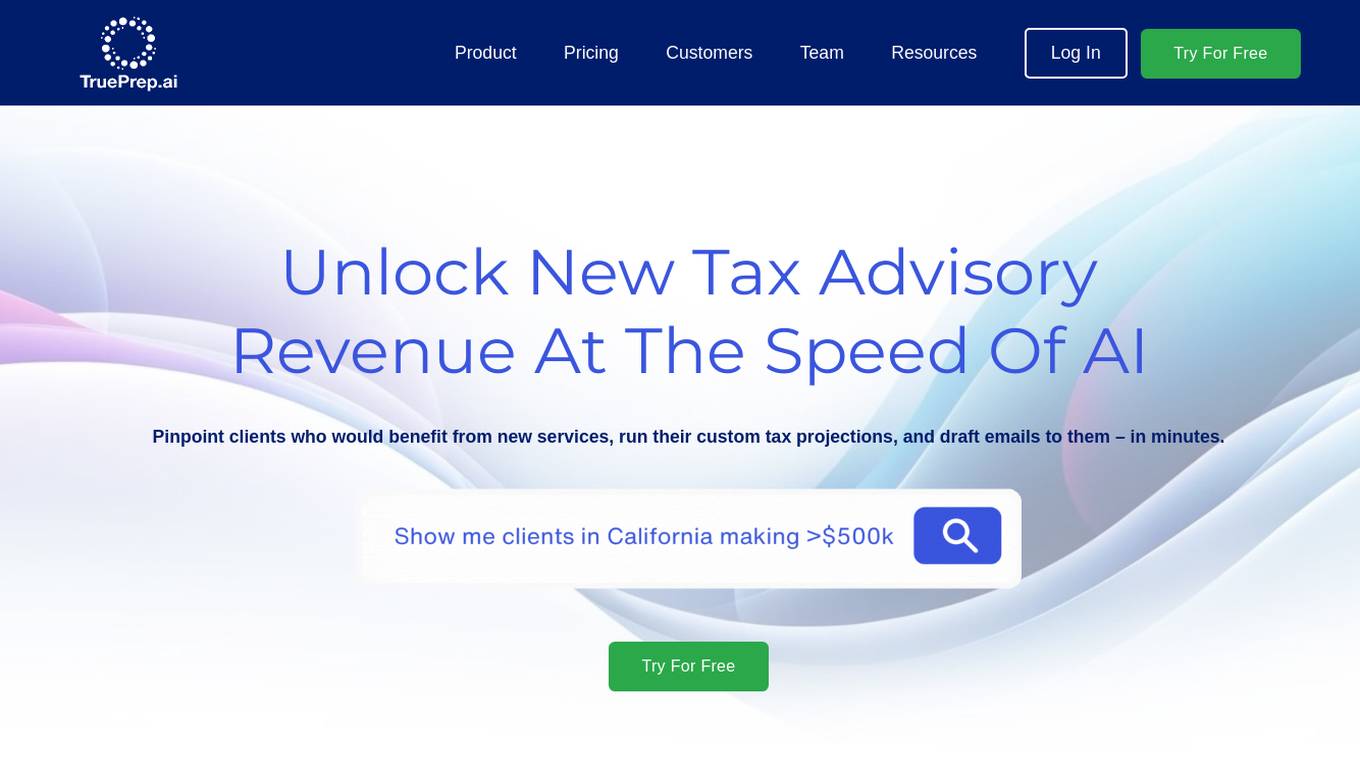
TruePrep
TruePrep is an AI software designed for tax accounting firms and CPAs to streamline tax planning, projections, and research processes. The AI Assistant within TruePrep helps accountants and financial advisors to quickly identify clients affected by tax changes, create tax projections, and answer complex tax questions in real time. By leveraging AI technology, TruePrep aims to save time, increase accuracy, and improve revenue generation for tax professionals.
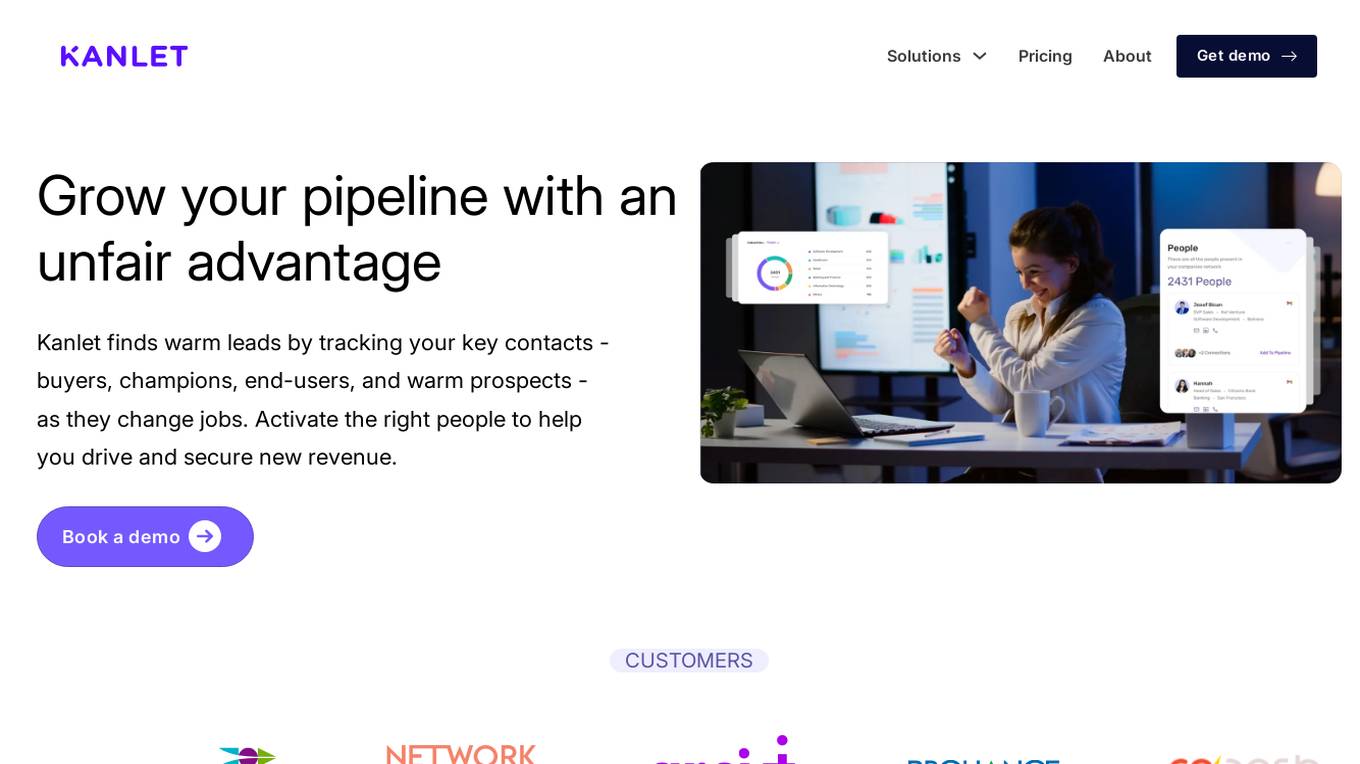
Kanlet
Kanlet is an AI-powered tool designed to simplify pipeline generation for sales and marketing teams. It helps users identify warm leads by tracking key contacts, such as buyers, champions, and end-users, as they change jobs. The tool aims to provide users with an unfair advantage in prospecting by surfacing relationship triggers and automating outreach through personalization using Generative AI. Kanlet also offers a relationship-driven pipeline generation strategy, prioritizing high-intent accounts and boosting outbound conversions with former customers. Additionally, it assists in keeping CRM data accurate and clean by flagging departed contacts and updating missing buyer personas.
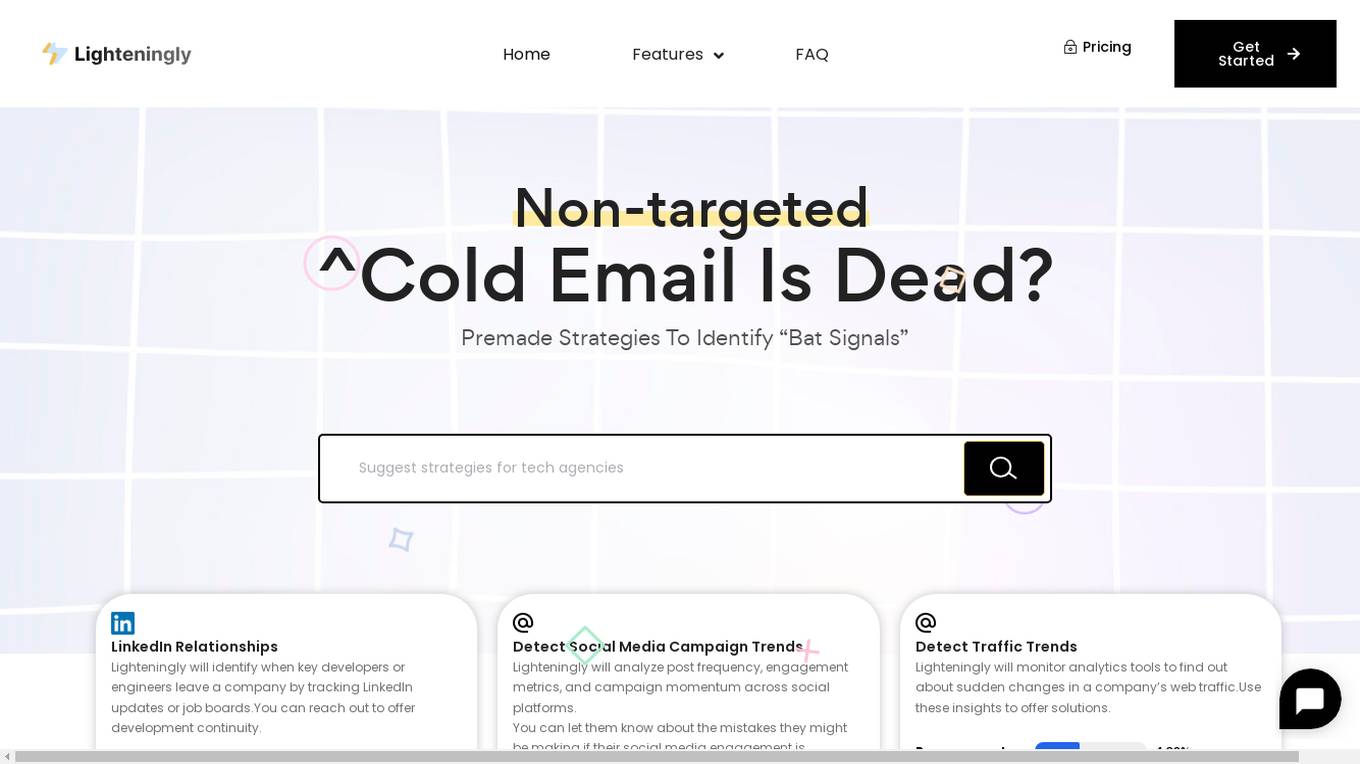
Lighteningly
Lighteningly is an AI-powered B2B Lead Enrichment Tool that offers a comprehensive suite of features to help businesses identify high-intent leads, enrich lead data, track lead behavior, and trigger automated outreach. The tool leverages AI to monitor digital signals, social media trends, project delays, team churn, and leadership changes, providing actionable insights for sales prospecting and marketing automation. Lighteningly aims to streamline lead generation and engagement processes by offering a vast lead database, email drafting, LinkedIn campaign management, and social media trend analysis.
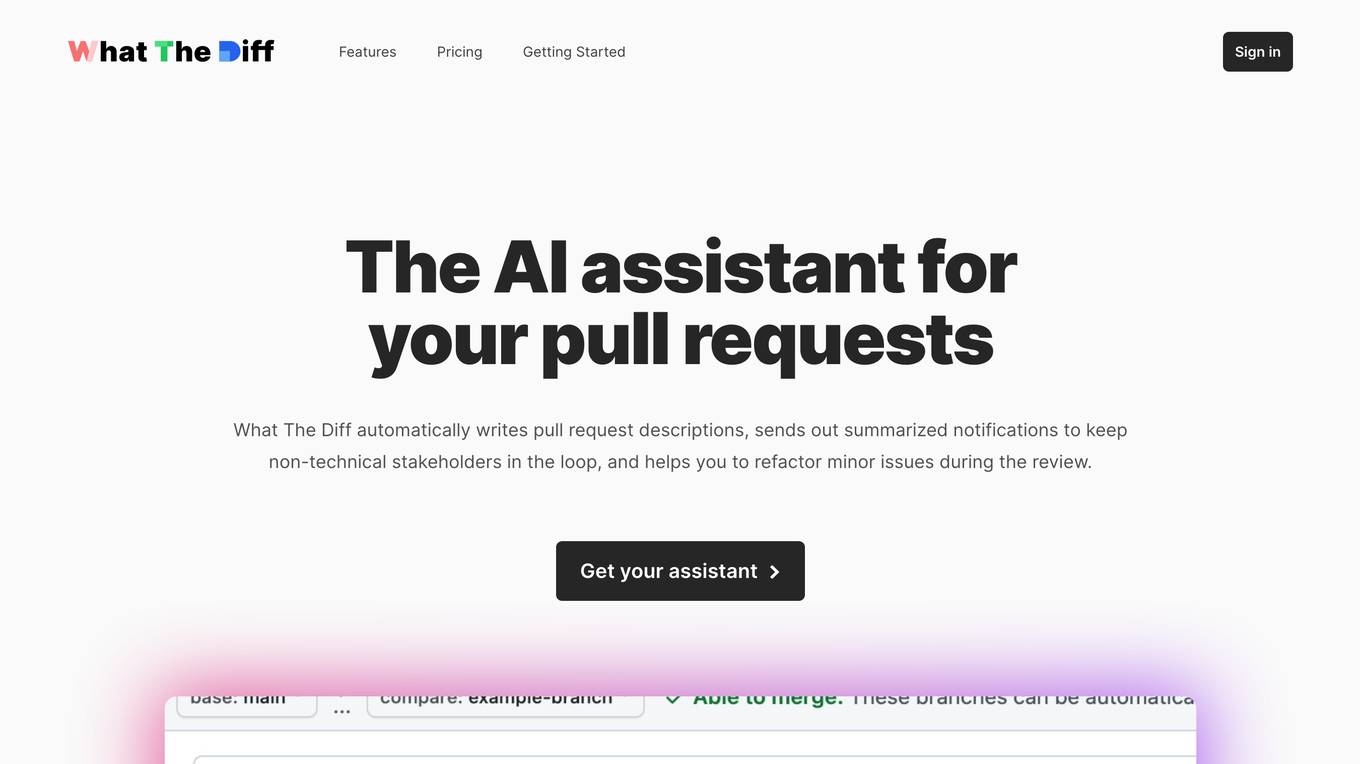
What The Diff
What The Diff is an AI-powered code review assistant that helps you to write pull request descriptions, send out summarized notifications, and refactor minor issues during the review. It uses natural language processing to understand the changes in your code and generate clear and concise descriptions. What The Diff also provides rich summary notifications that are easy for non-technical stakeholders to understand, and it can generate beautiful changelogs that you can share with your team or the public.
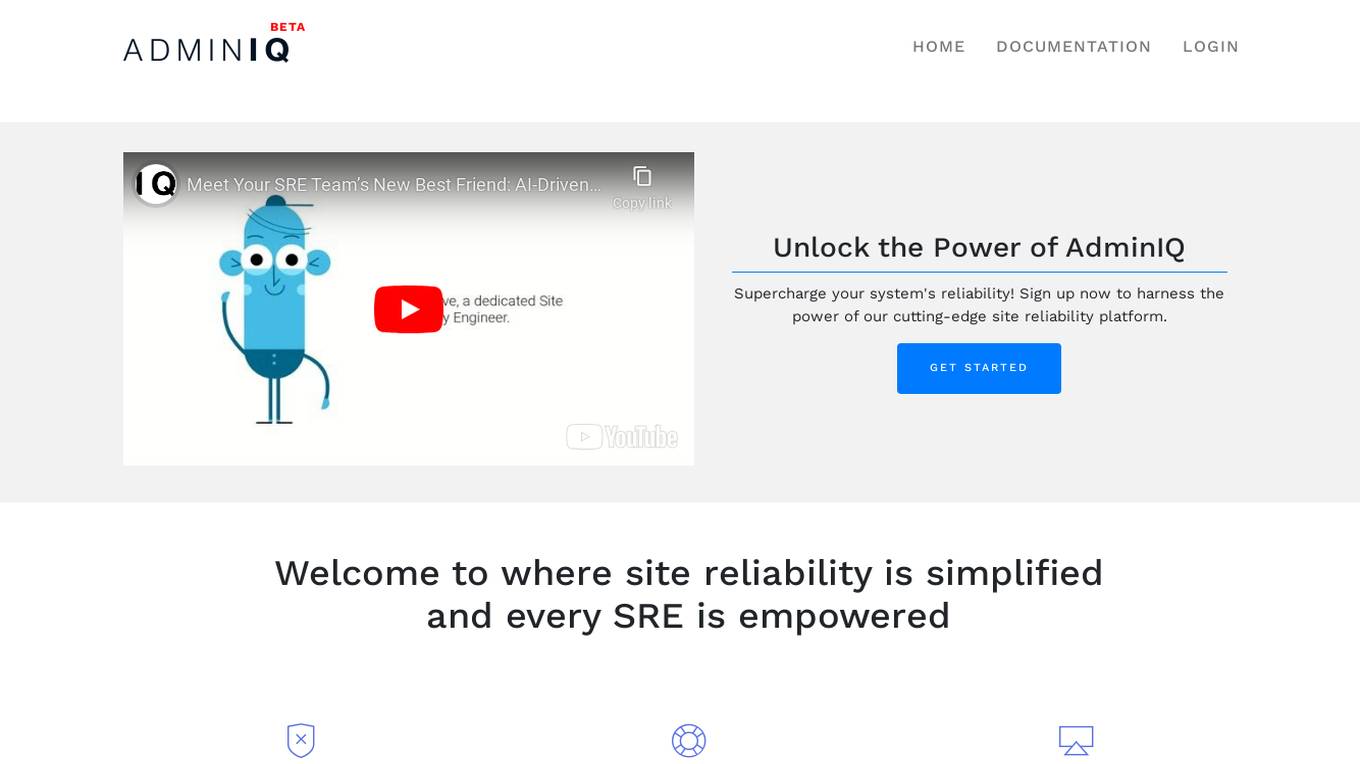
AdminIQ
AdminIQ is an AI-powered site reliability platform that helps businesses improve the reliability and performance of their websites and applications. It uses machine learning to analyze data from various sources, including application logs, metrics, and user behavior, to identify and resolve issues before they impact users. AdminIQ also provides a suite of tools to help businesses automate their site reliability processes, such as incident management, change management, and performance monitoring.
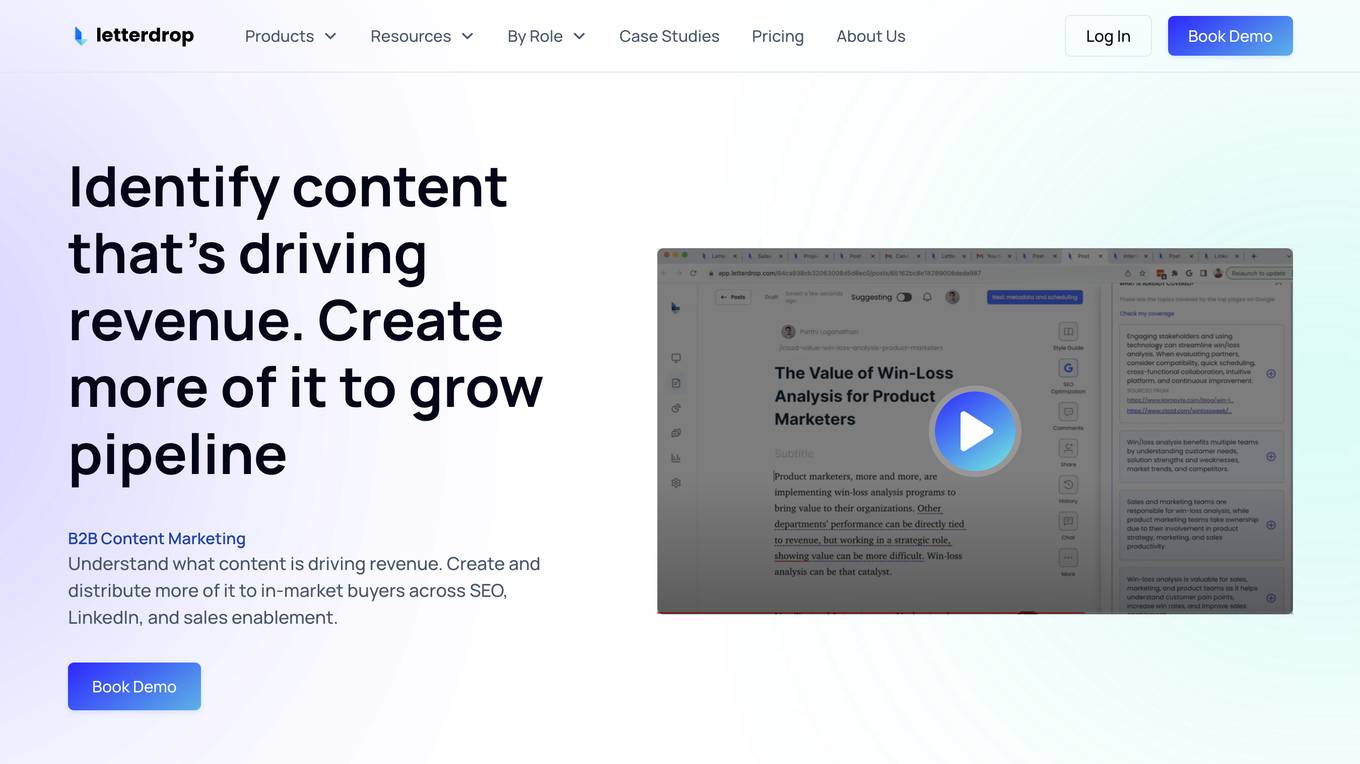
Letterdrop
Letterdrop is a sales enablement platform that helps businesses scale their sales efforts by providing tools for competitor monitoring, social listening, closed/lost revival, and champion job changes. It allows users to find high-intent leads, revive lost opportunities, and reach out to past customers when they join new companies. With features like signals, case studies, and a wall of love, Letterdrop aims to help sales and marketing teams improve their outreach strategies and book more meetings. The platform offers insights into buyer behavior, helps identify blind spots, and provides actionable signals to enhance sales performance.
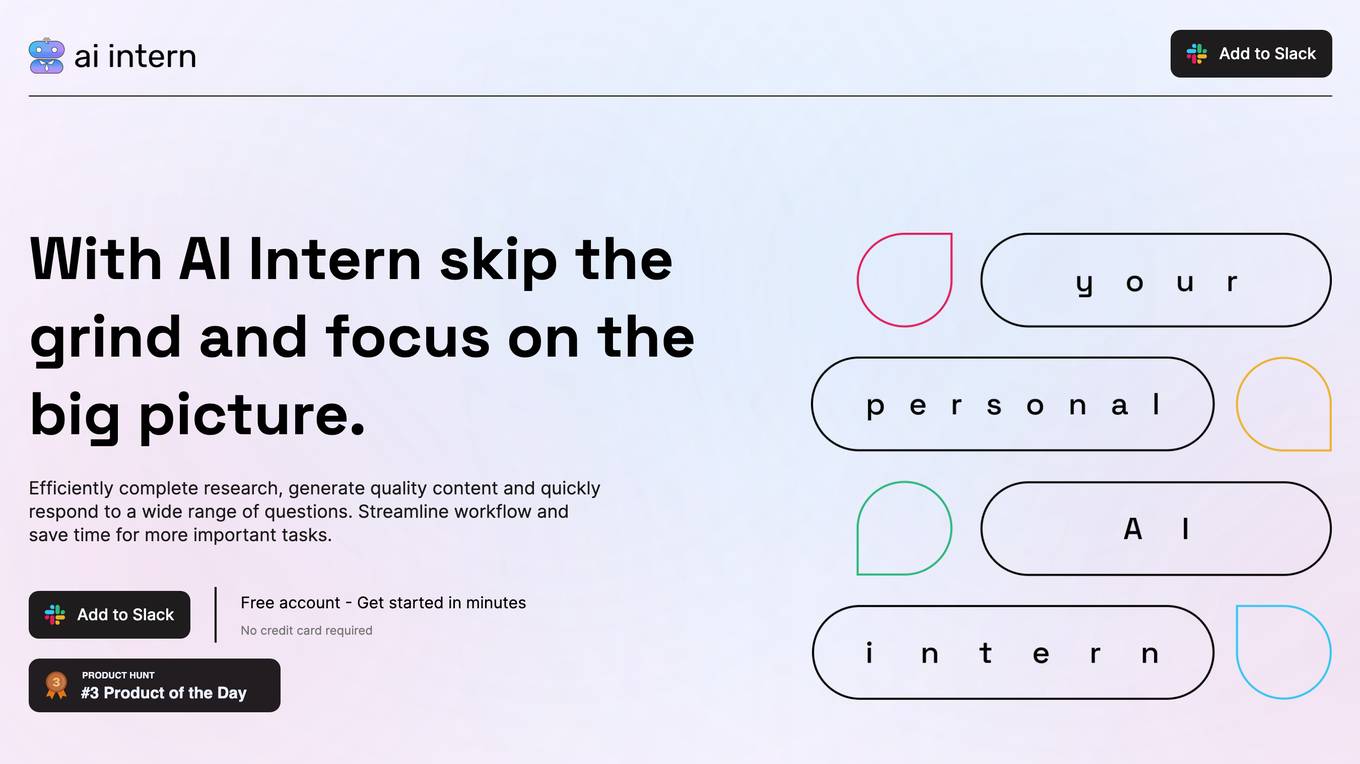
AI Intern
AI Intern is an AI-native content engine designed for demand growth. It automates the creation of written, visual, and audio content to attract the right buyers. The platform uses analytics and AI search strategy to identify trending topics and keywords, updating content weekly for continuous improvement. AI Intern offers a system that learns and adapts to the fast-paced changes in buyer behavior and digital channels. It provides a comprehensive solution for content marketing, combining AI-powered ICP and keyword research, multi-channel publishing, real analytics, and weekly improvement cycles.
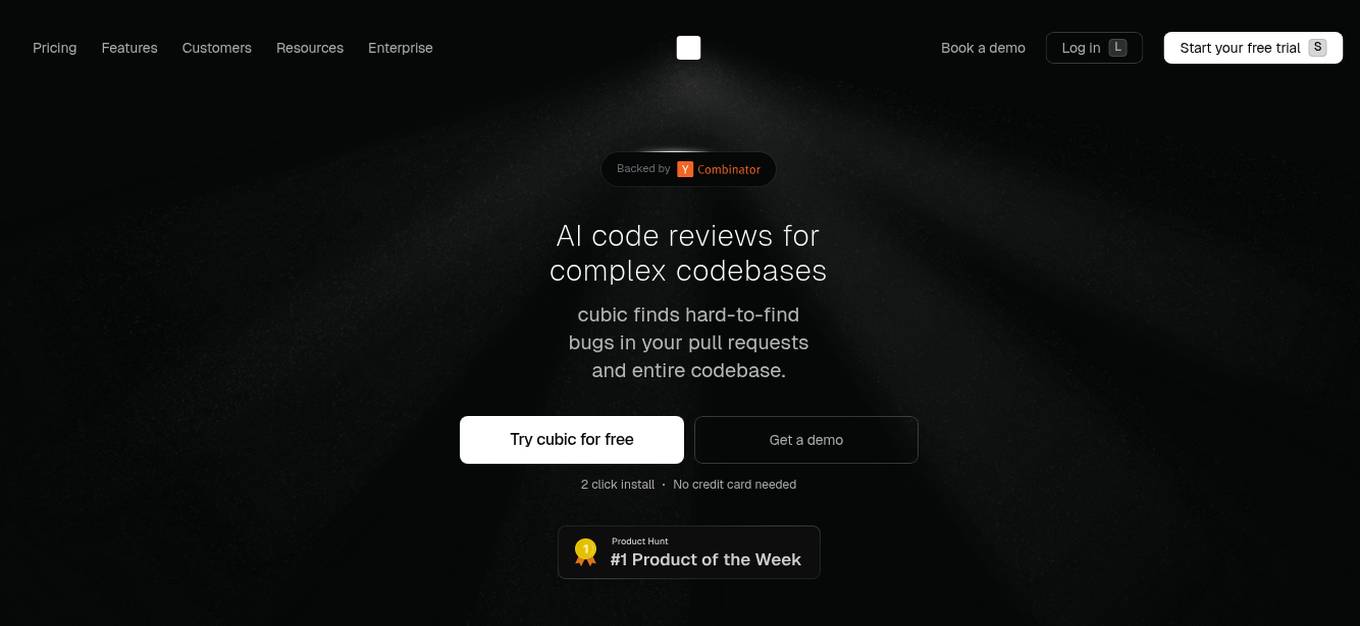
cubic
cubic is an AI-native code-review platform that leverages artificial intelligence to conduct code reviews for complex codebases. It helps teams identify hard-to-find bugs in pull requests and the entire codebase, providing context-aware feedback and summaries to enhance the review process. cubic continuously scans codebases for bugs and vulnerabilities, triages issues, enforces coding standards, and learns from team feedback to improve over time. The platform offers features like automatic PR descriptions, one-click issue fixes, intelligent diff ordering, and visualizing high-level changes. With a focus on security and privacy, cubic ensures that code remains secure and private by not storing or training AI on the code. It supports various programming languages and offers different pricing plans tailored to different team sizes and needs.

Botify AI
Botify AI is an AI tool that helps users optimize their website for search engines. It provides advanced analytics and insights to improve website performance and increase visibility on search engine results pages. With Botify AI, users can track and analyze key metrics, identify opportunities for optimization, and monitor the impact of changes on search engine rankings. The tool offers a user-friendly interface and actionable recommendations to help users make data-driven decisions and achieve their SEO goals.
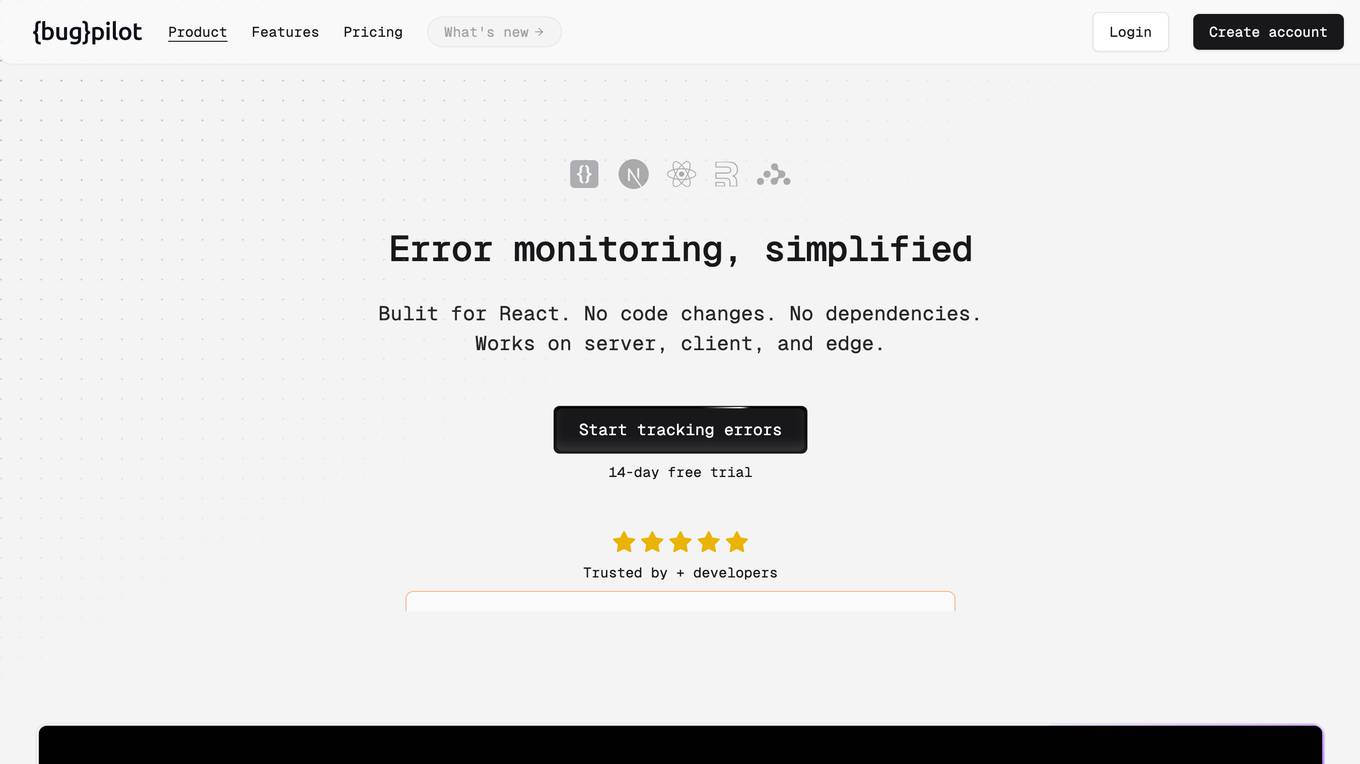
Bugpilot
Bugpilot is an error monitoring tool specifically designed for React applications. It offers a comprehensive platform for error tracking, debugging, and user communication. With Bugpilot, developers can easily integrate error tracking into their React applications without any code changes or dependencies. The tool provides a user-friendly dashboard that helps developers quickly identify and prioritize errors, understand their root causes, and plan fixes. Bugpilot also includes features such as AI-assisted debugging, session recordings, and customizable error pages to enhance the user experience and reduce support requests.
0 - Open Source AI Tools
20 - OpenAI Gpts
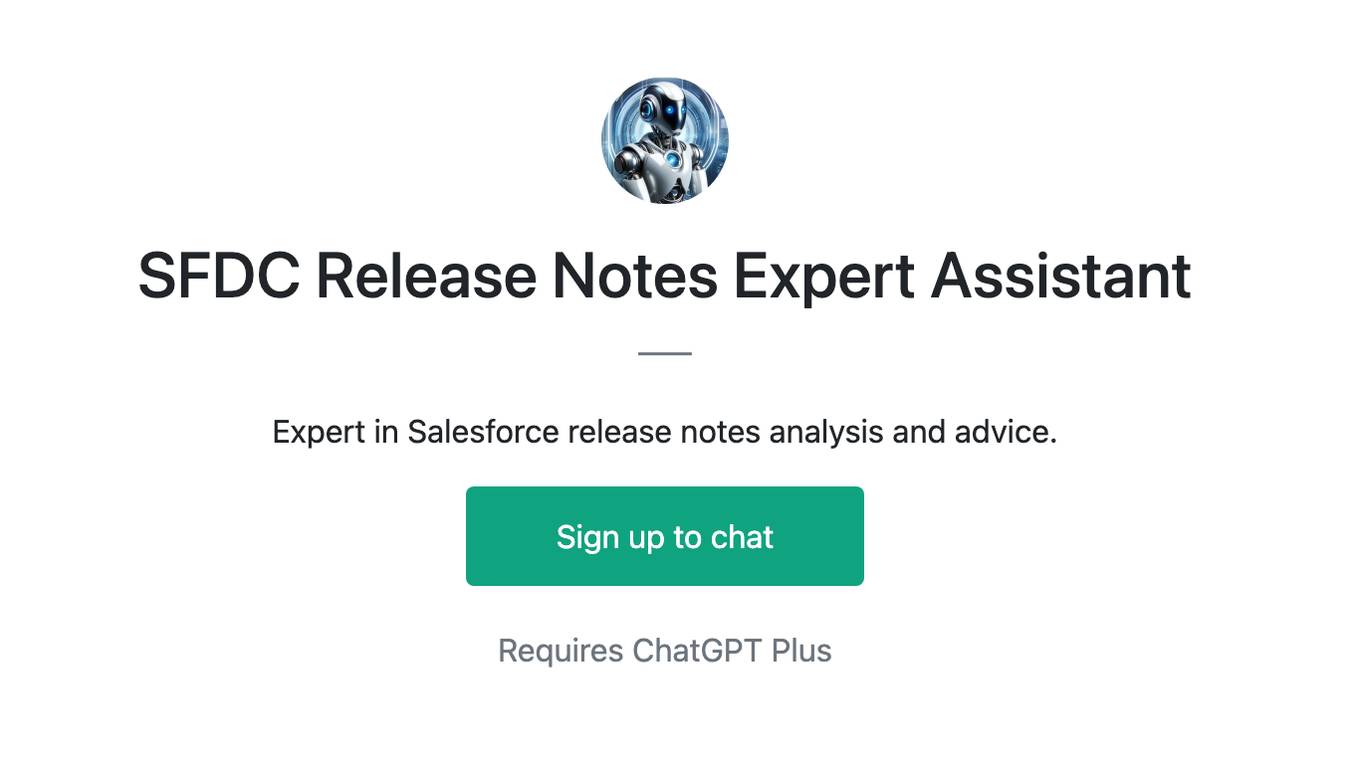
SFDC Release Notes Expert Assistant
Expert in Salesforce release notes analysis and advice.
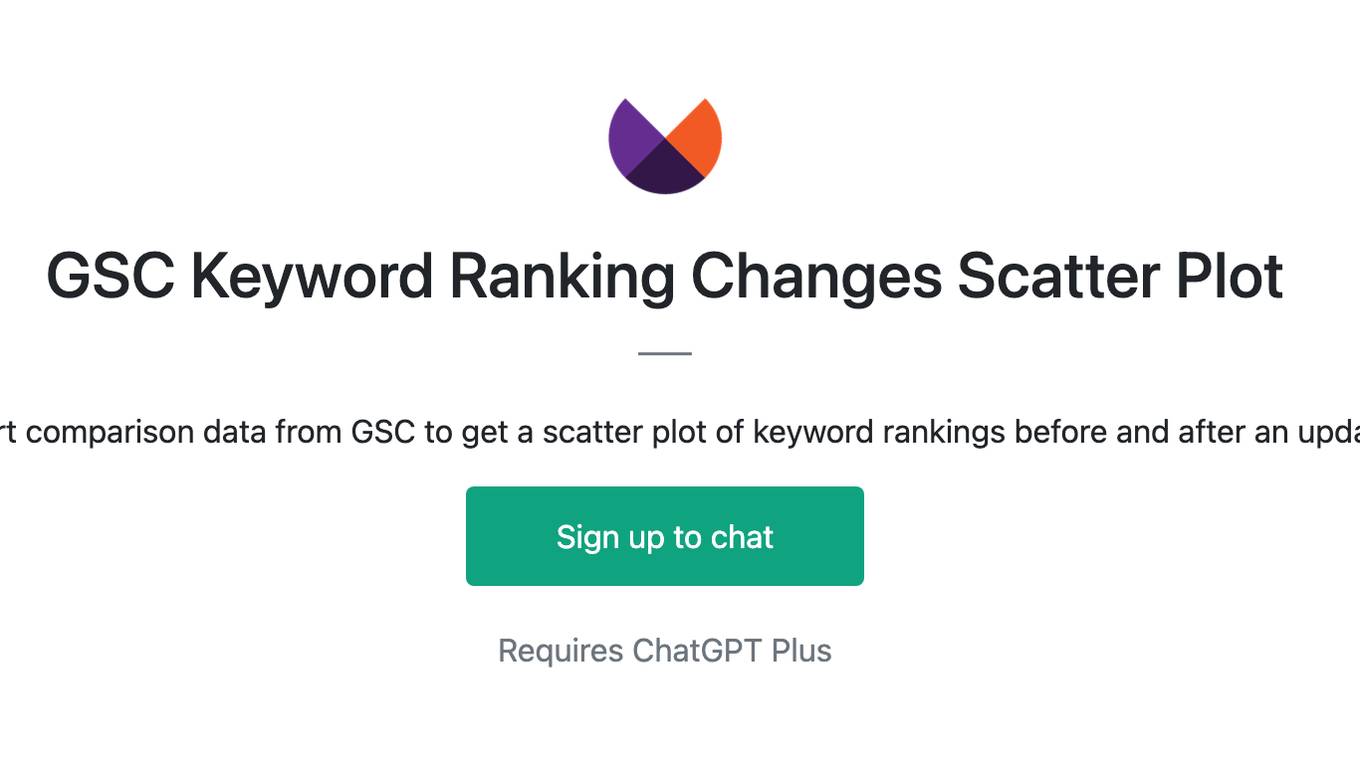
GSC Keyword Ranking Changes Scatter Plot
Export comparison data from GSC to get a scatter plot of keyword rankings before and after an update.
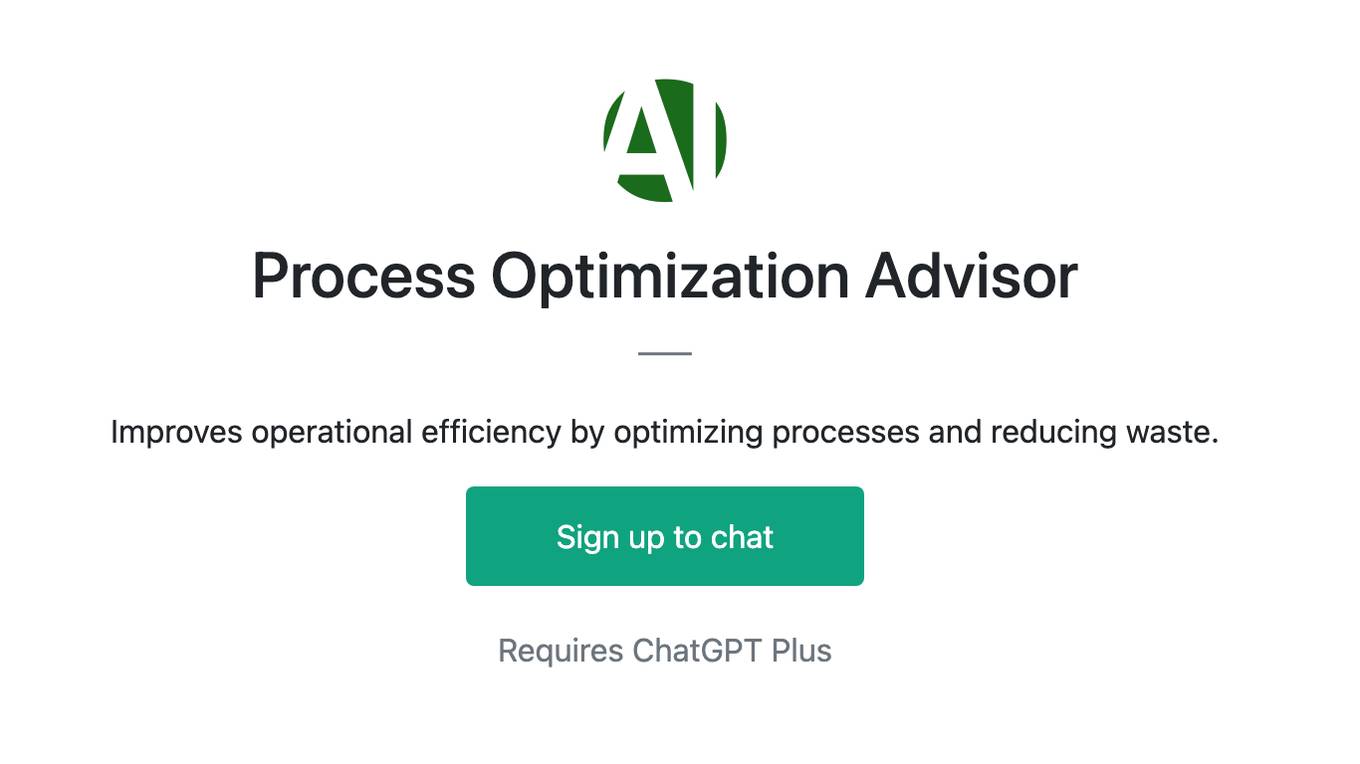
Process Optimization Advisor
Improves operational efficiency by optimizing processes and reducing waste.

Technical Service Agreement Review Expert
Review your tech service agreements 24/7, find legal risk and give suggestions. (Powered by LegalNow ai.legalnow.xyz)
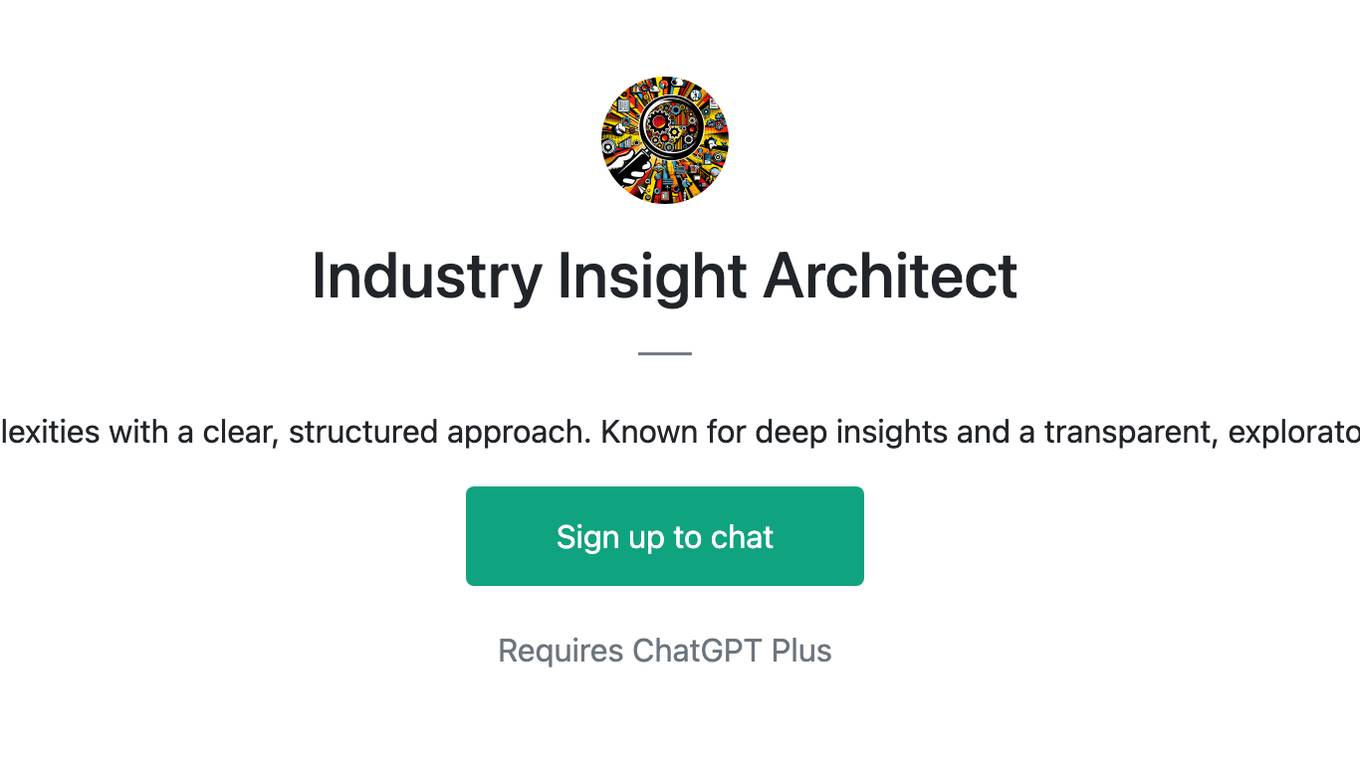
Industry Insight Architect
Guiding audiences through industry complexities with a clear, structured approach. Known for deep insights and a transparent, exploratory journey into sector-specific nuances.
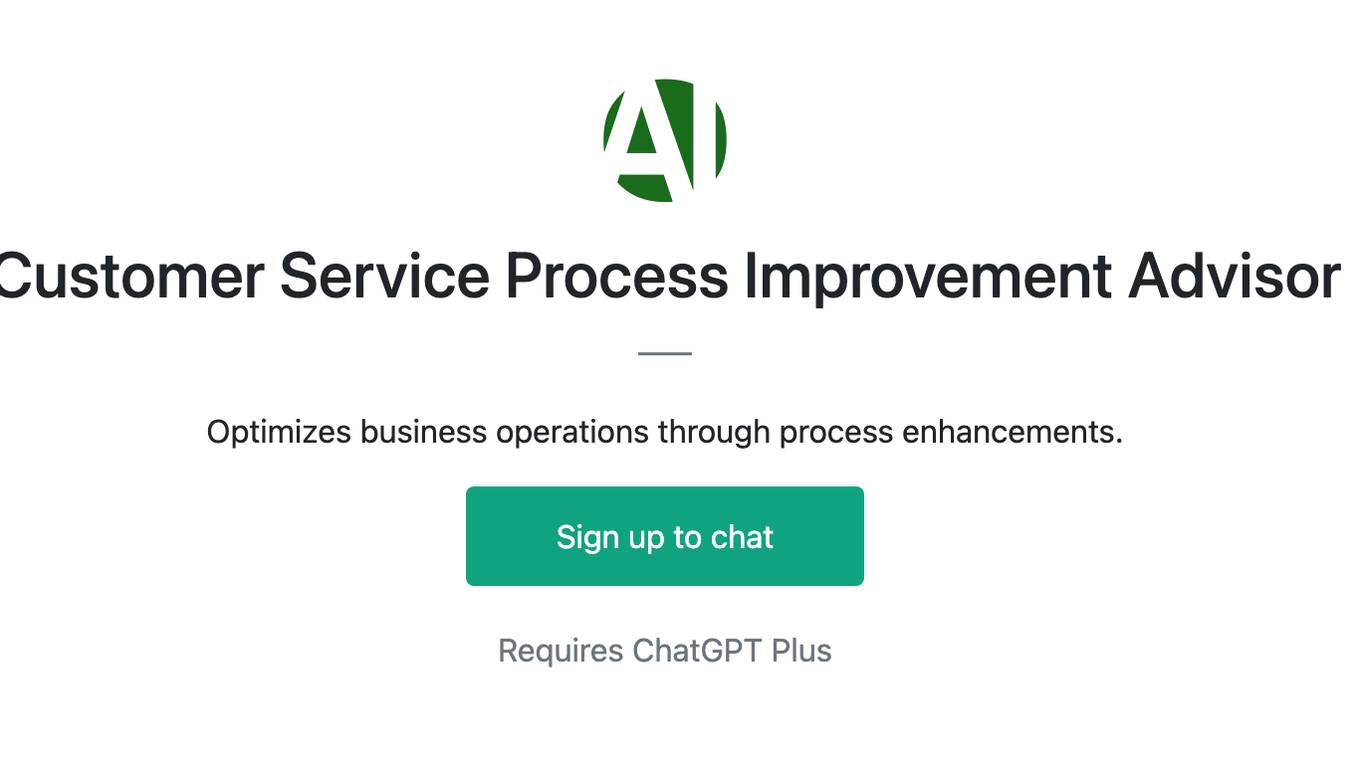
Customer Service Process Improvement Advisor
Optimizes business operations through process enhancements.

🔮 Cosmic Career Oracle 🔮
Find your cosmic career connection ✨ through the intersection of astrology, Human Design & other personality profiles (MBTI, Enneagram, etc)
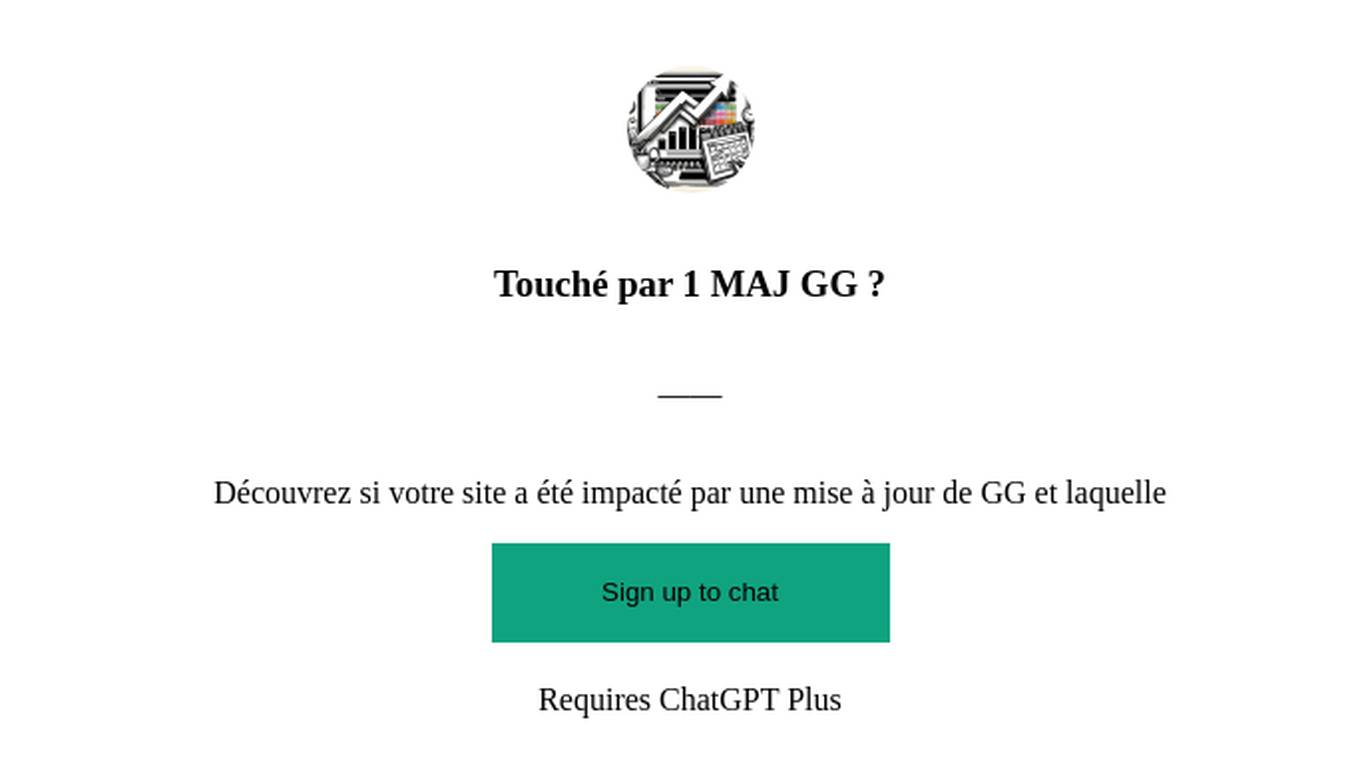
Touché par 1 MAJ GG ?
Découvrez si votre site a été impacté par une mise à jour de GG et laquelle

Project Change Management Advisor
Guides organizational transitions to achieve desired business outcomes.
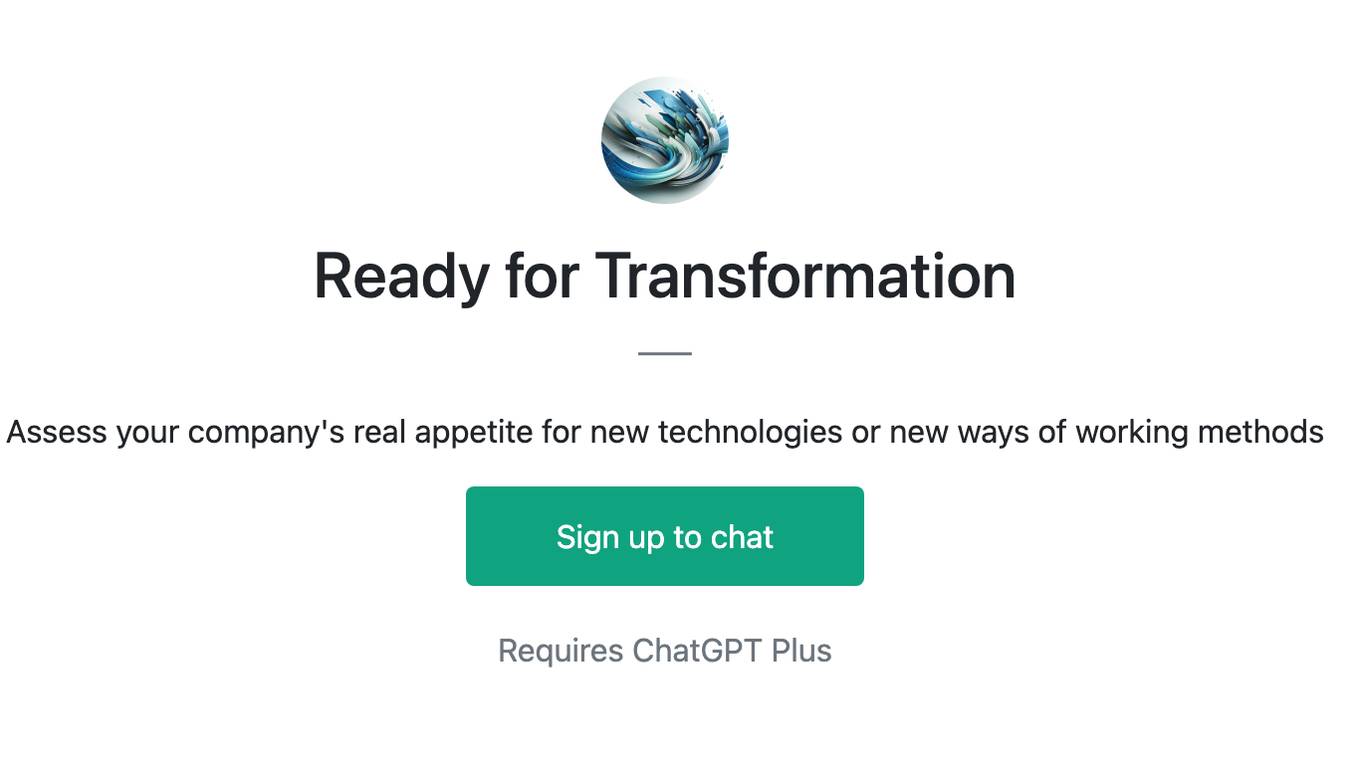
Ready for Transformation
Assess your company's real appetite for new technologies or new ways of working methods

Earth Conscious Voice
Hi ;) Ask me for data & insights gathered from an environmentally aware global community

Project Benefit Realization Advisor
Advises on maximizing project benefits post-project closure.

Eco Advisor
Expert in sustainability and ESG practices, providing informative advice and insights.
